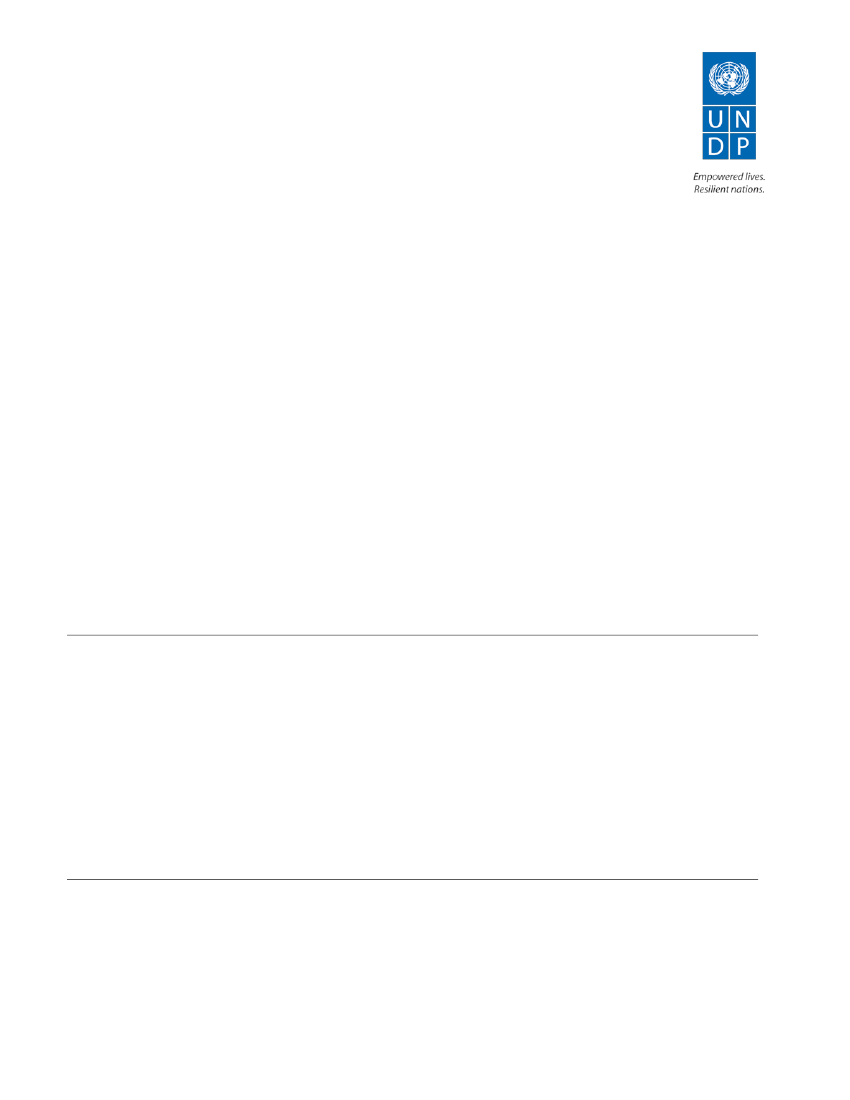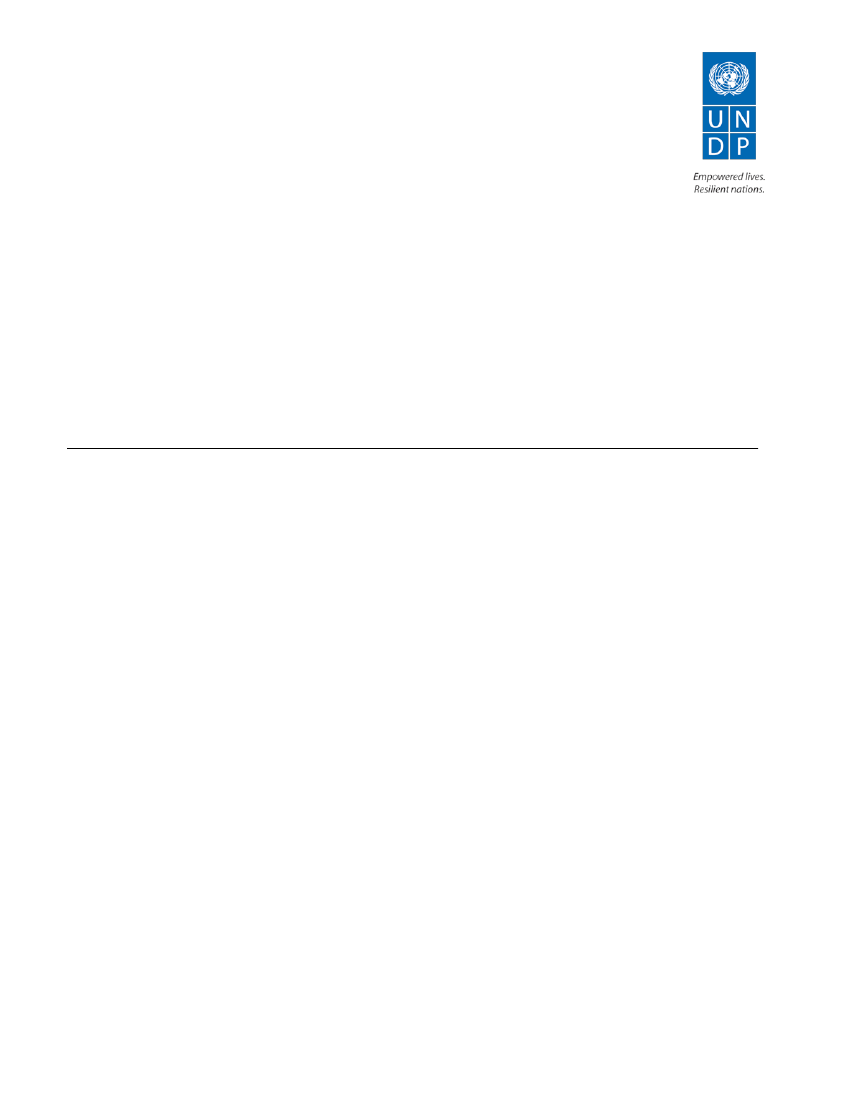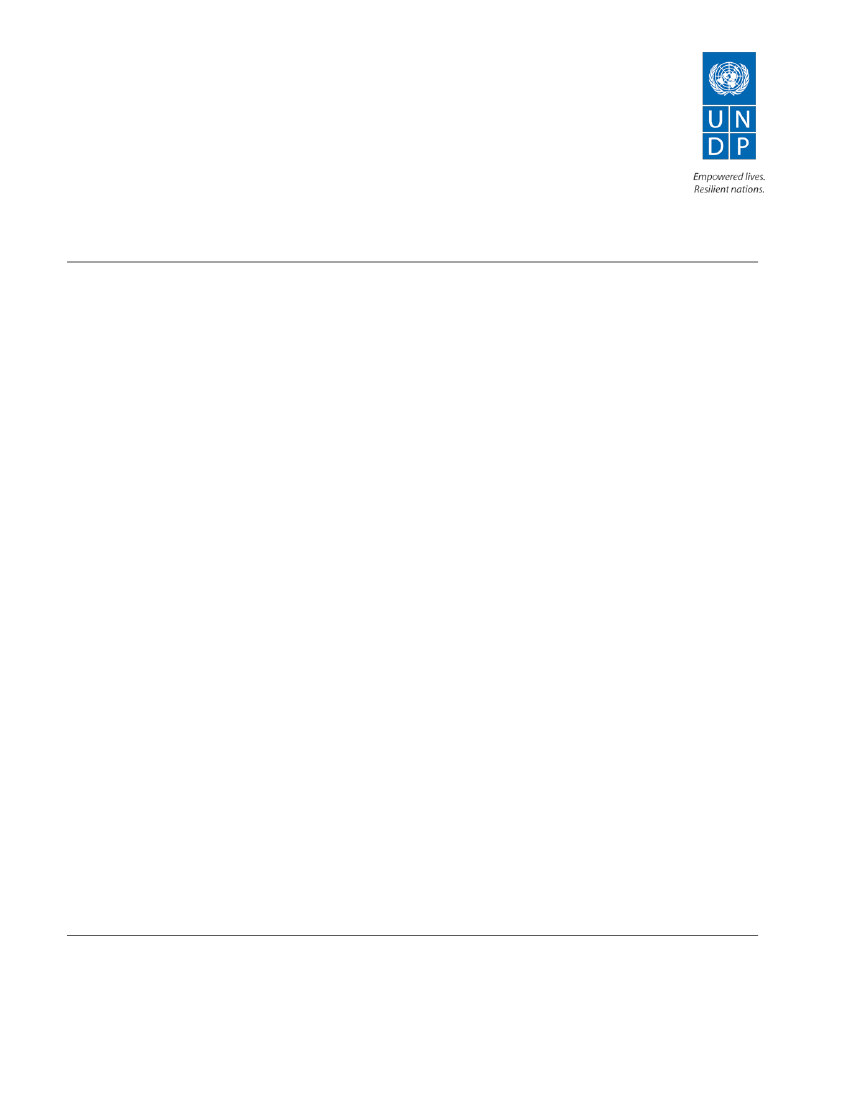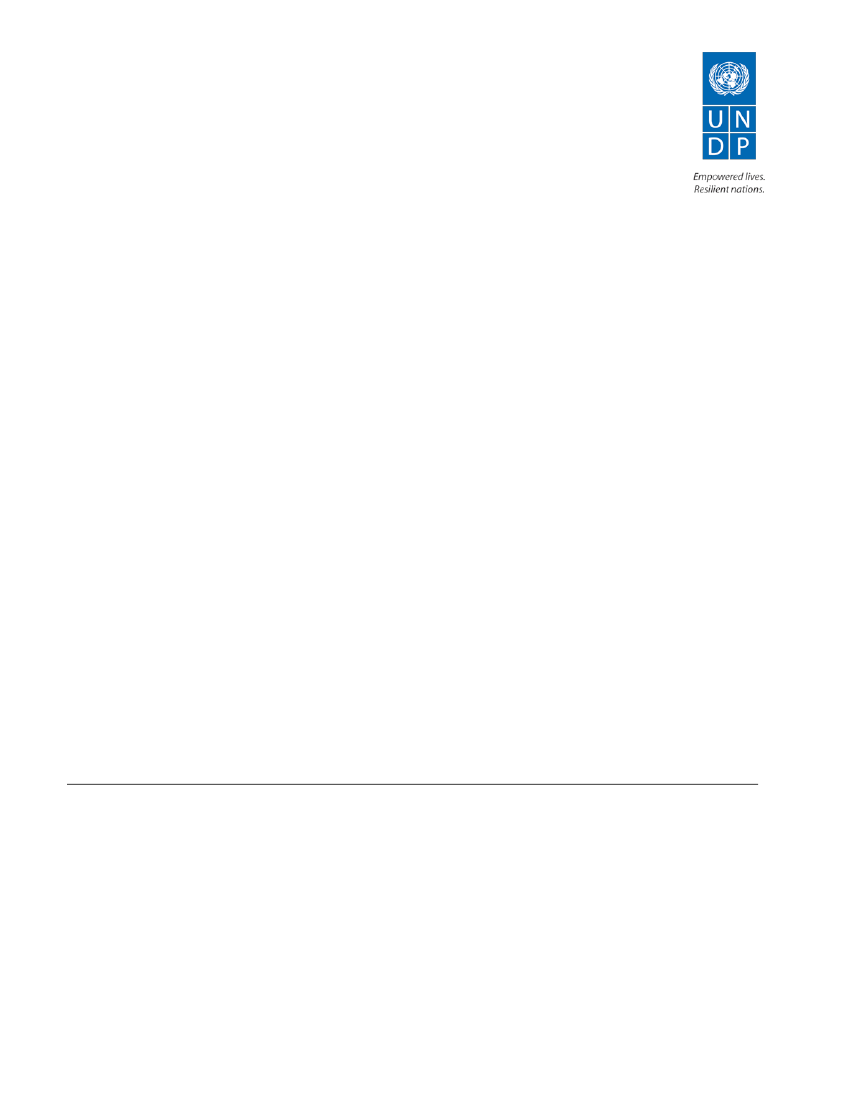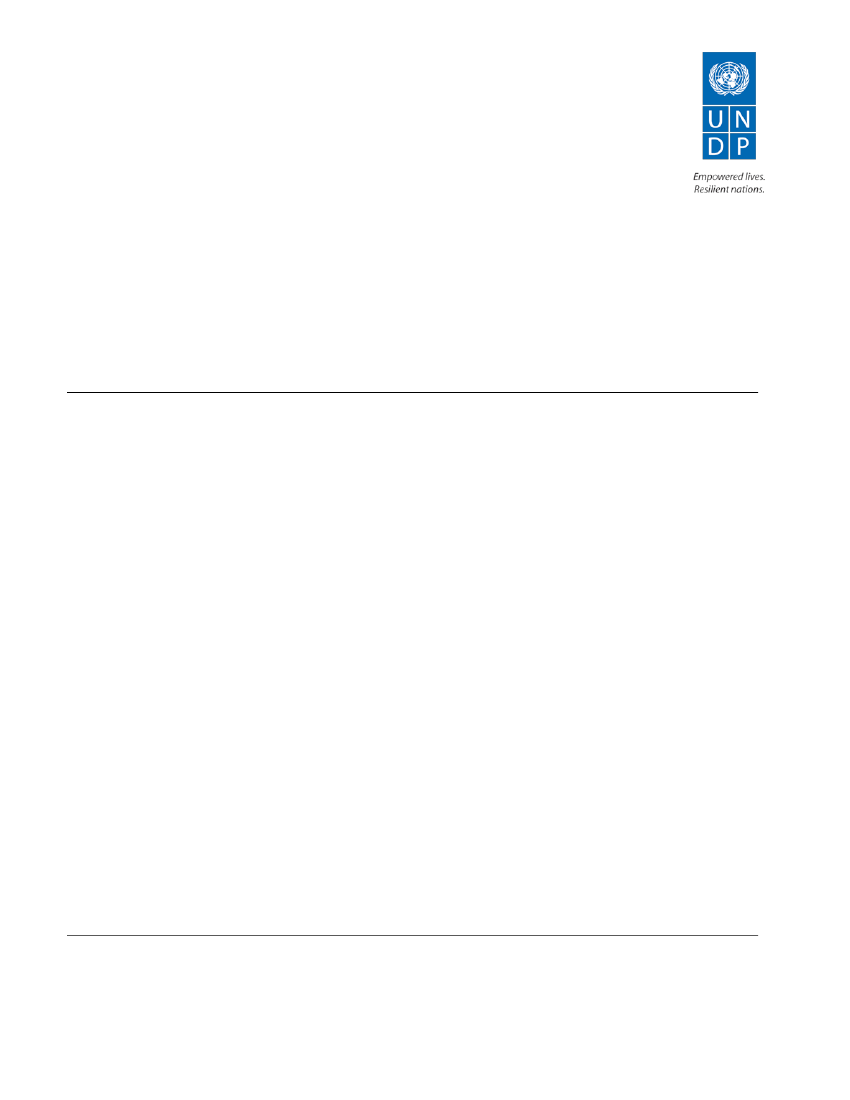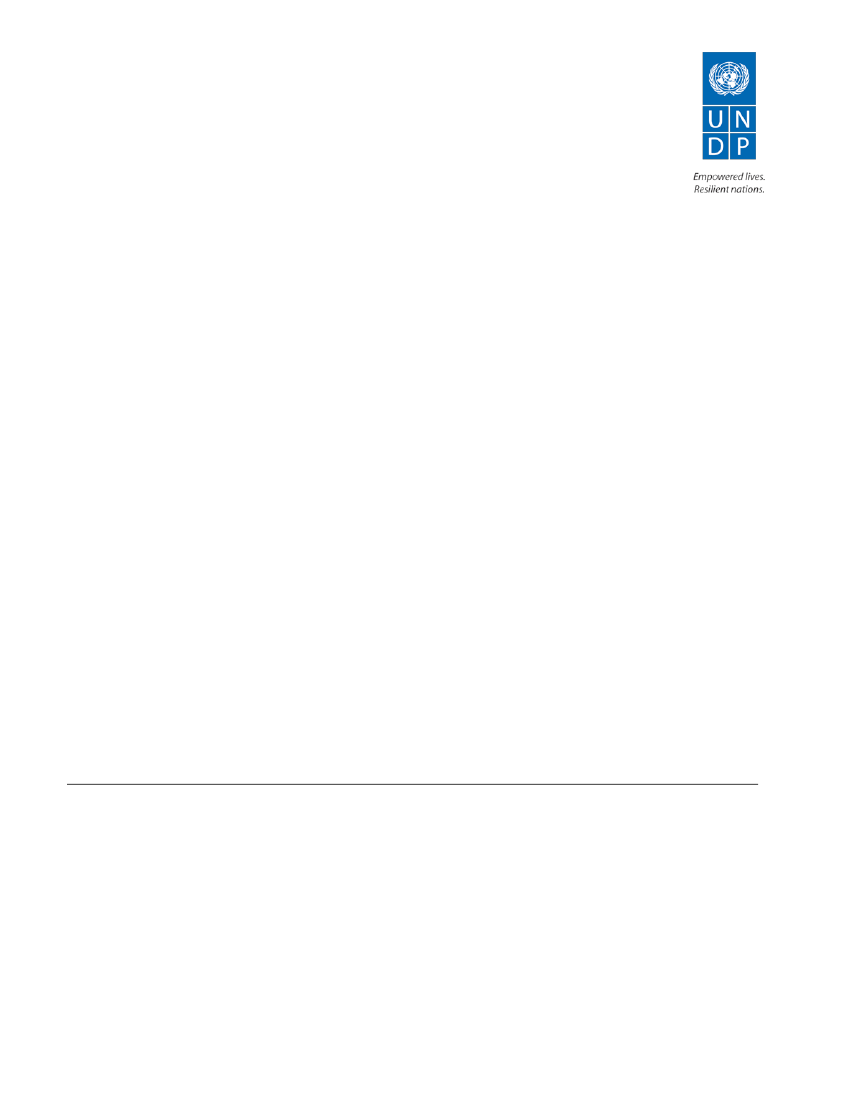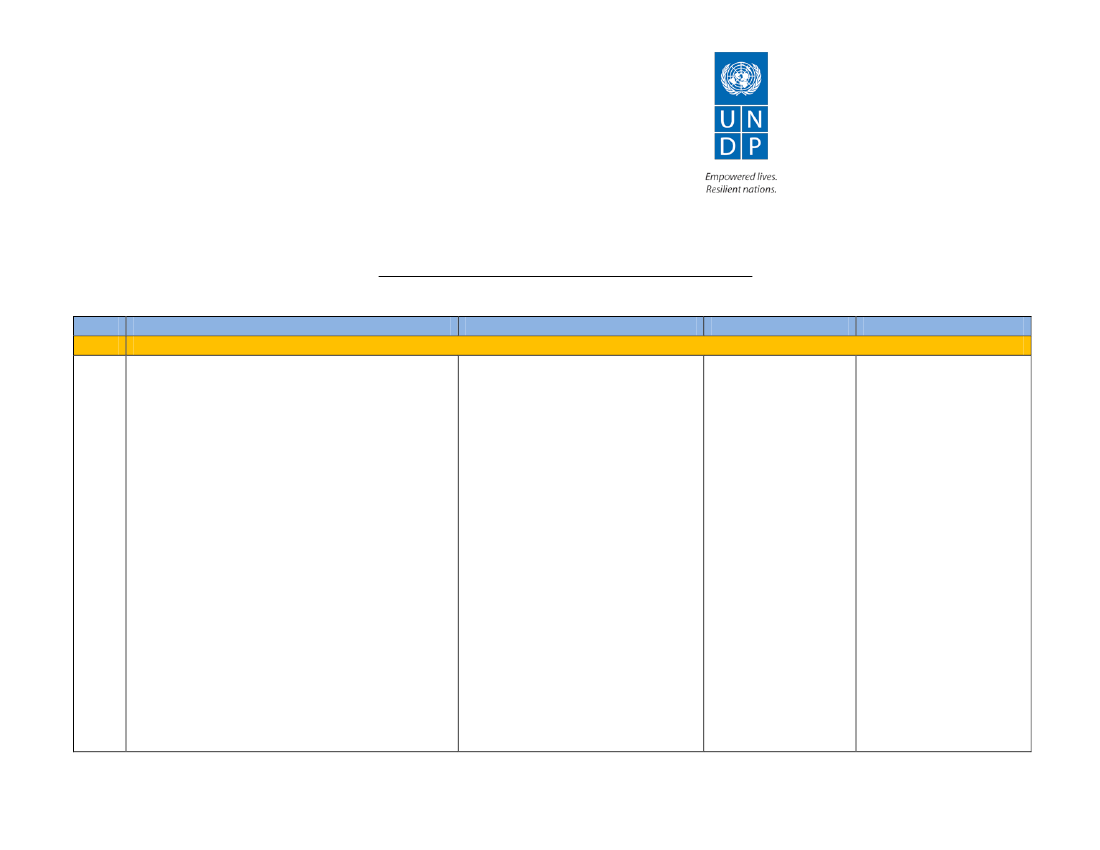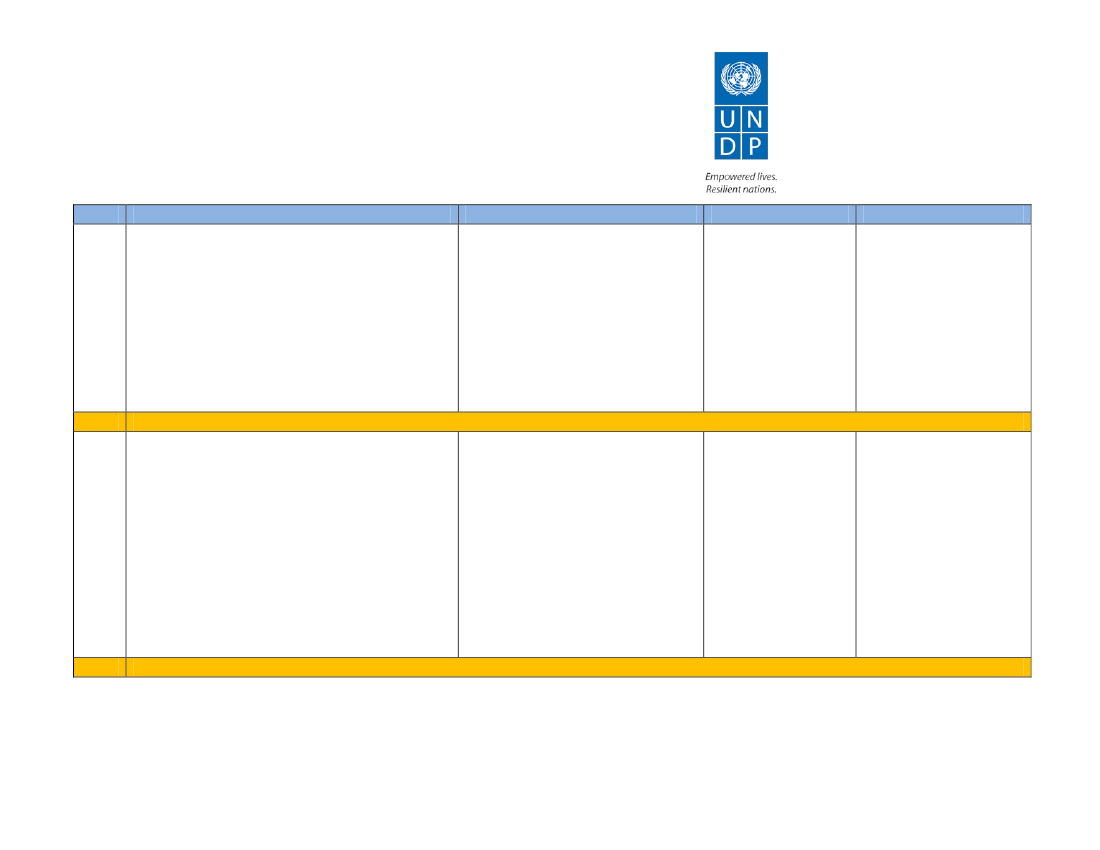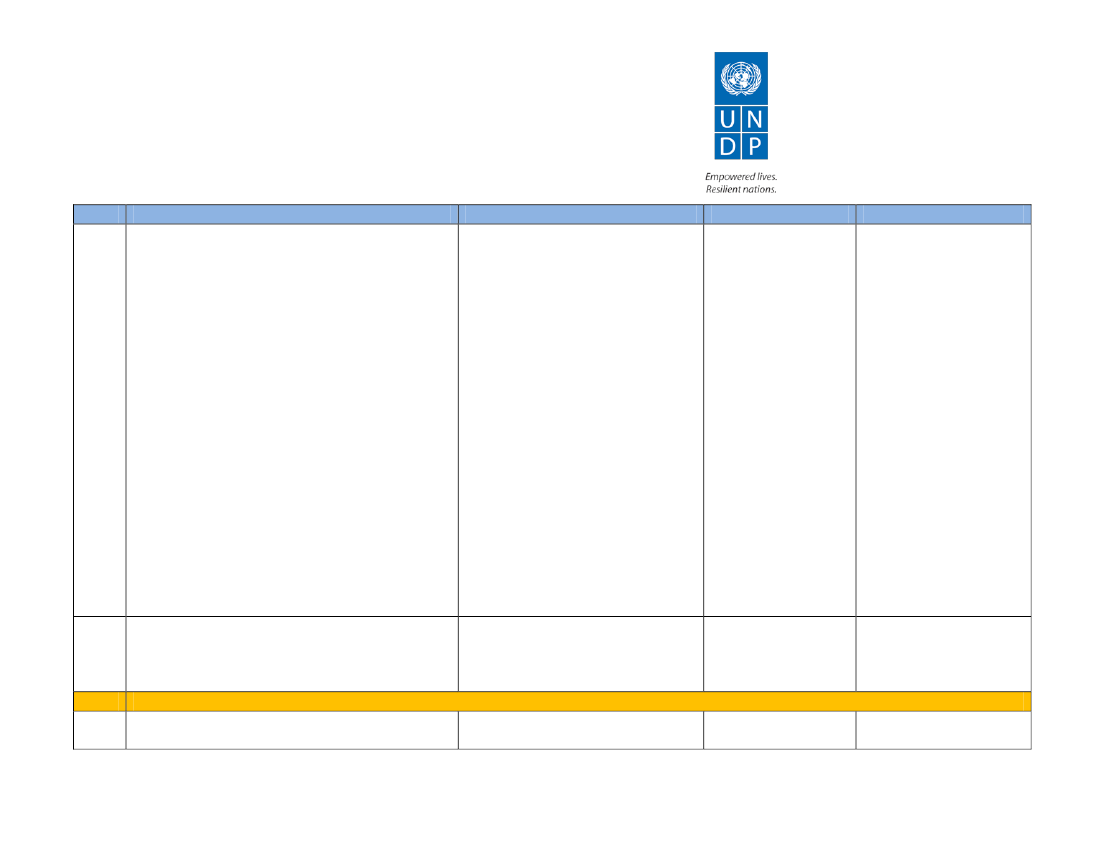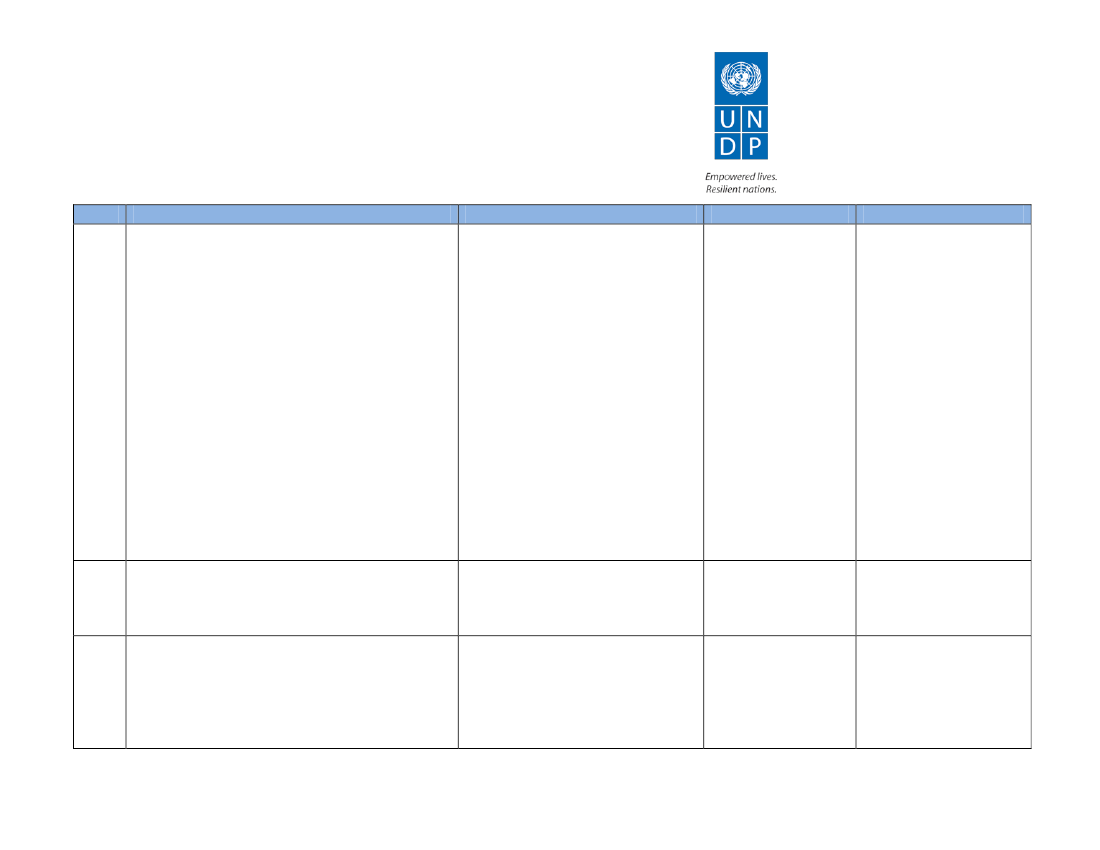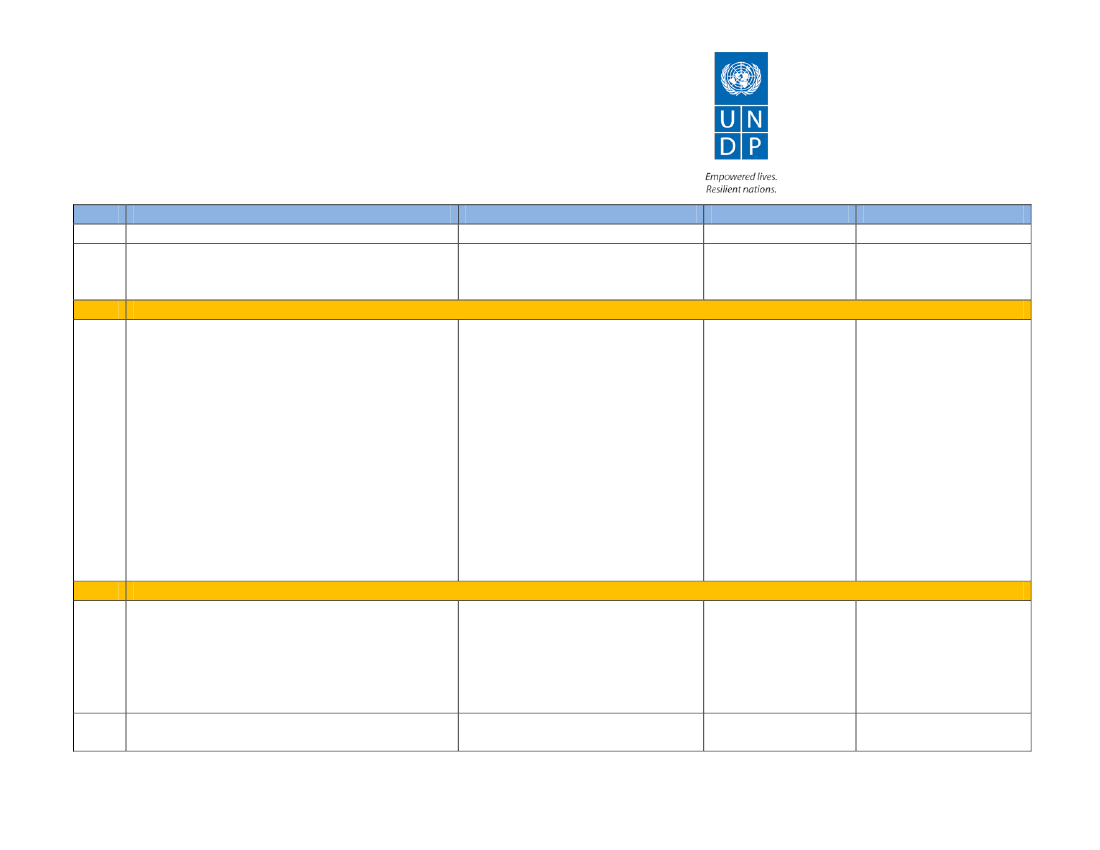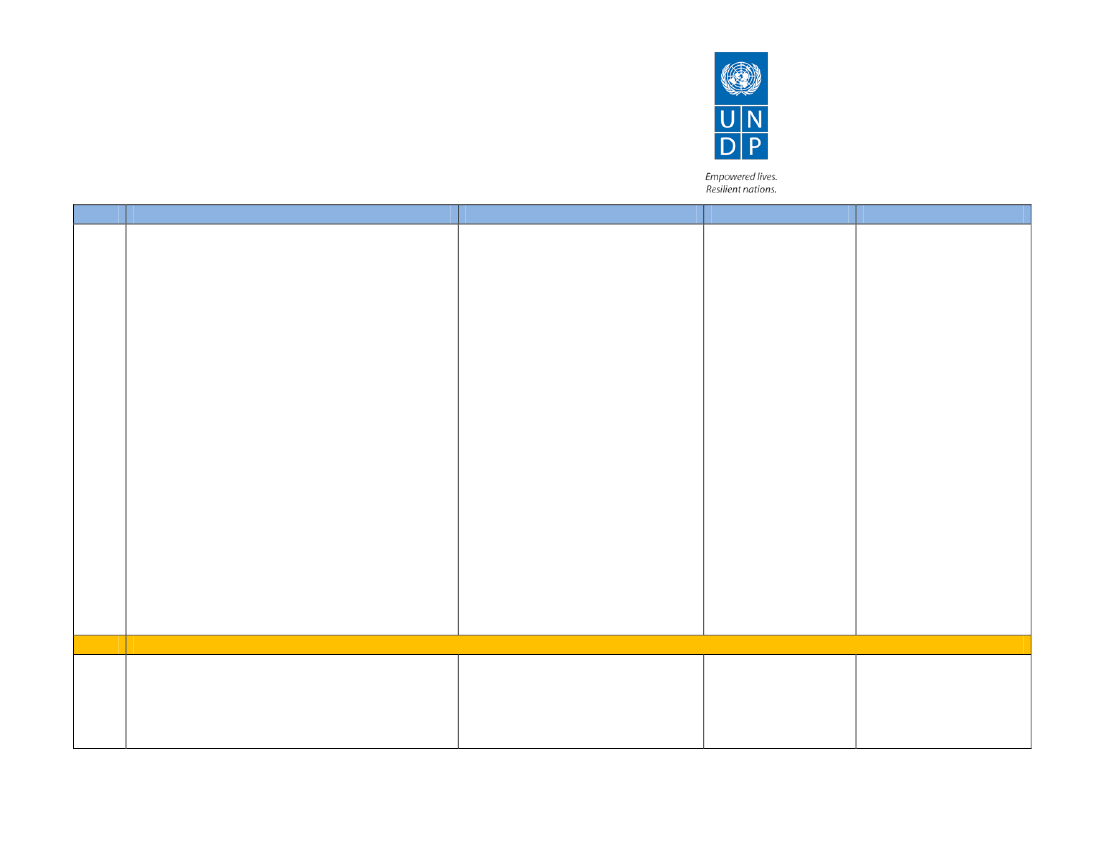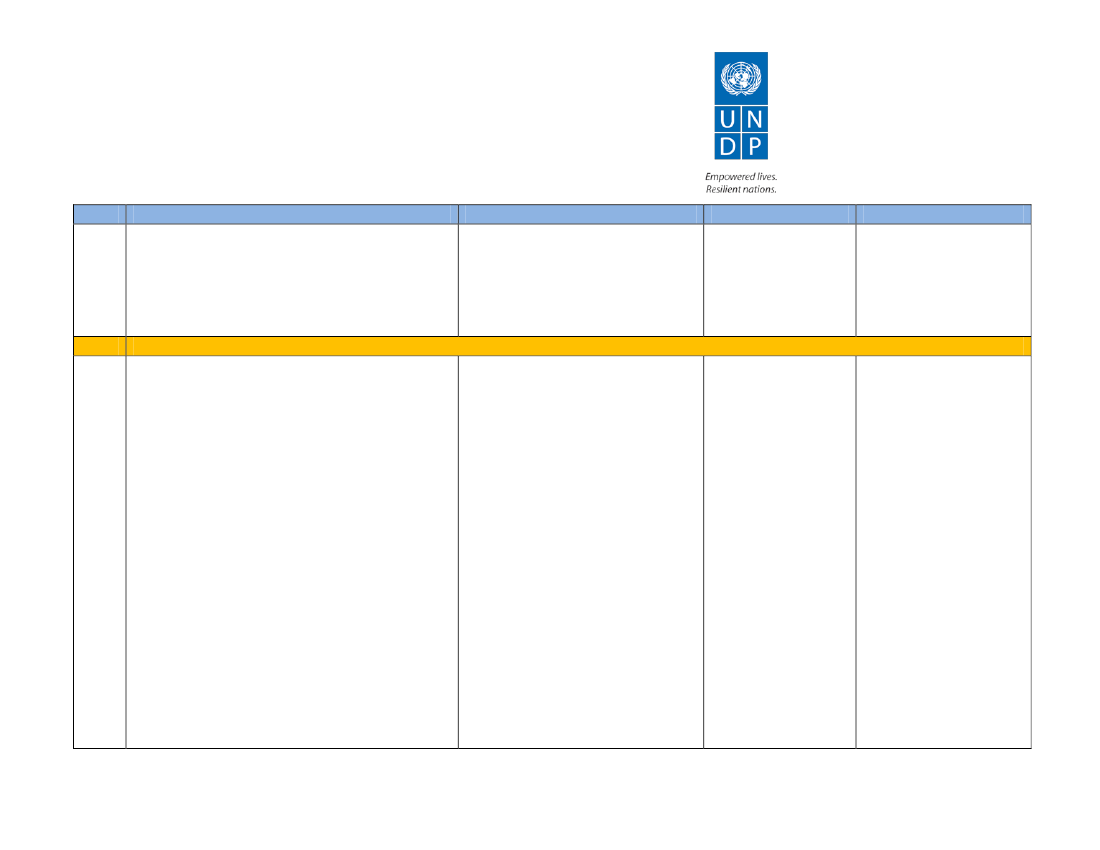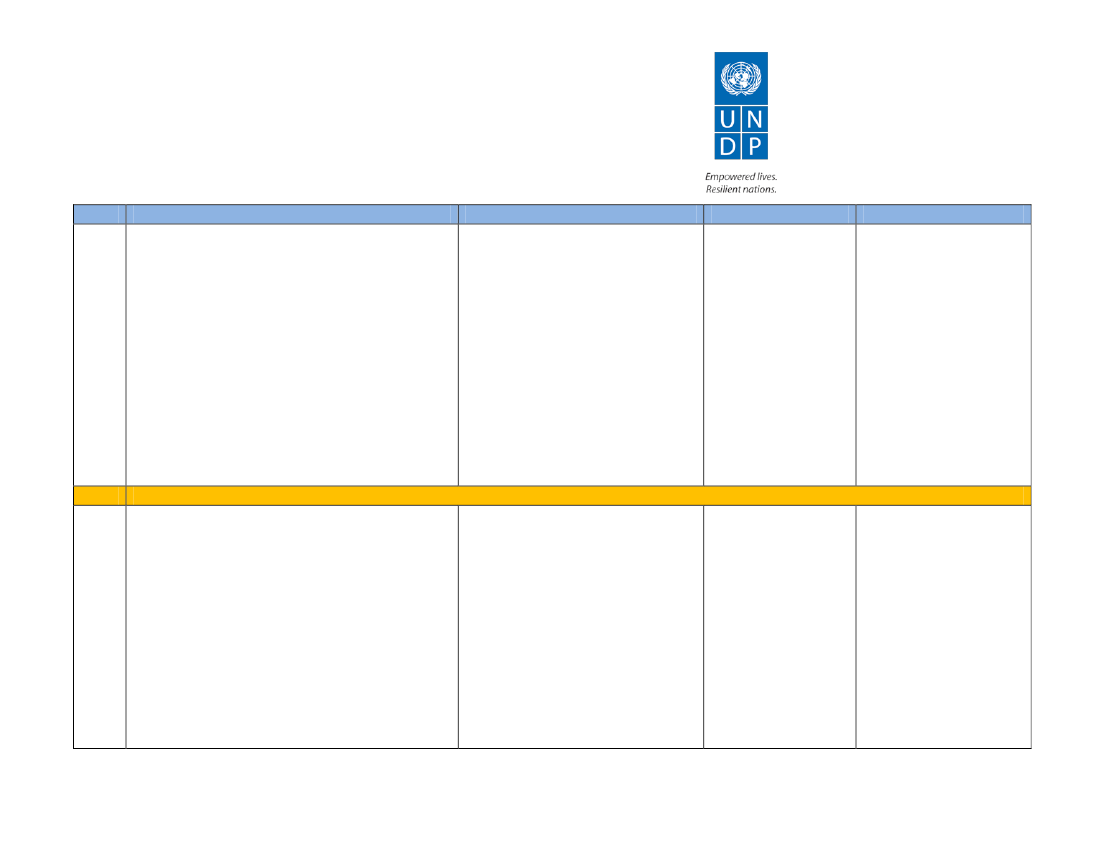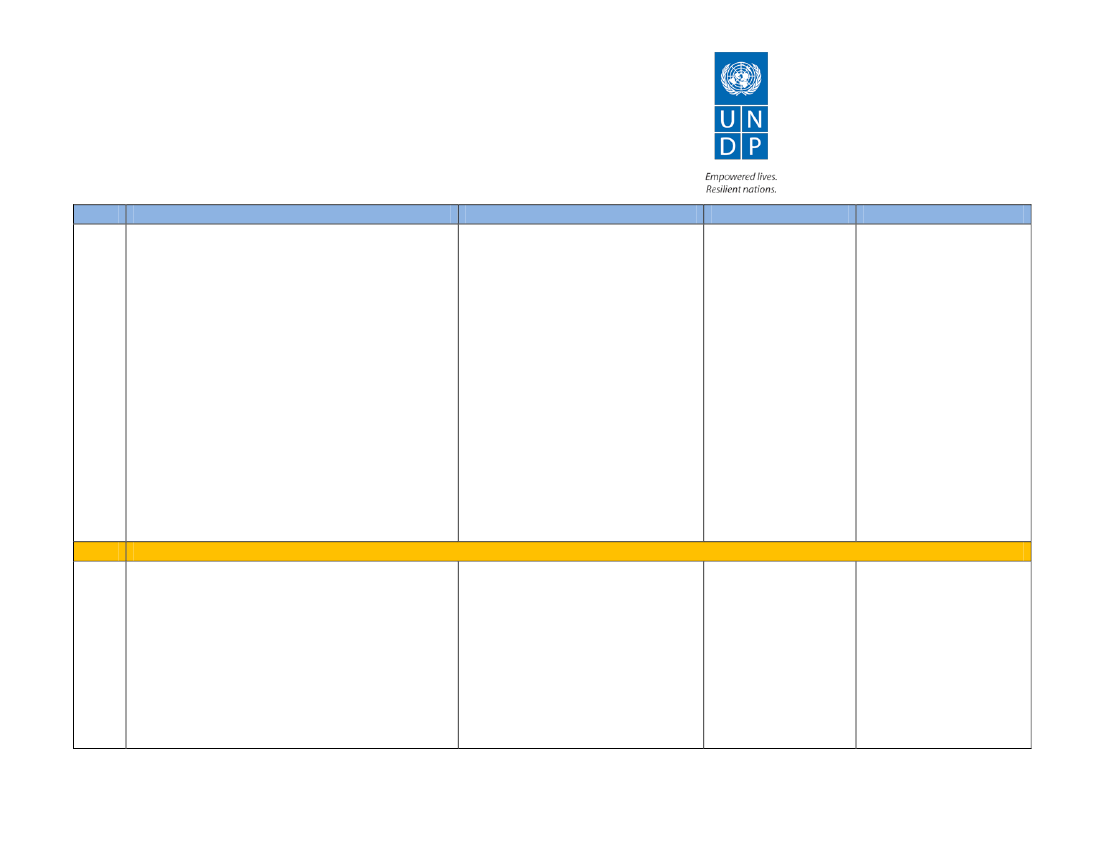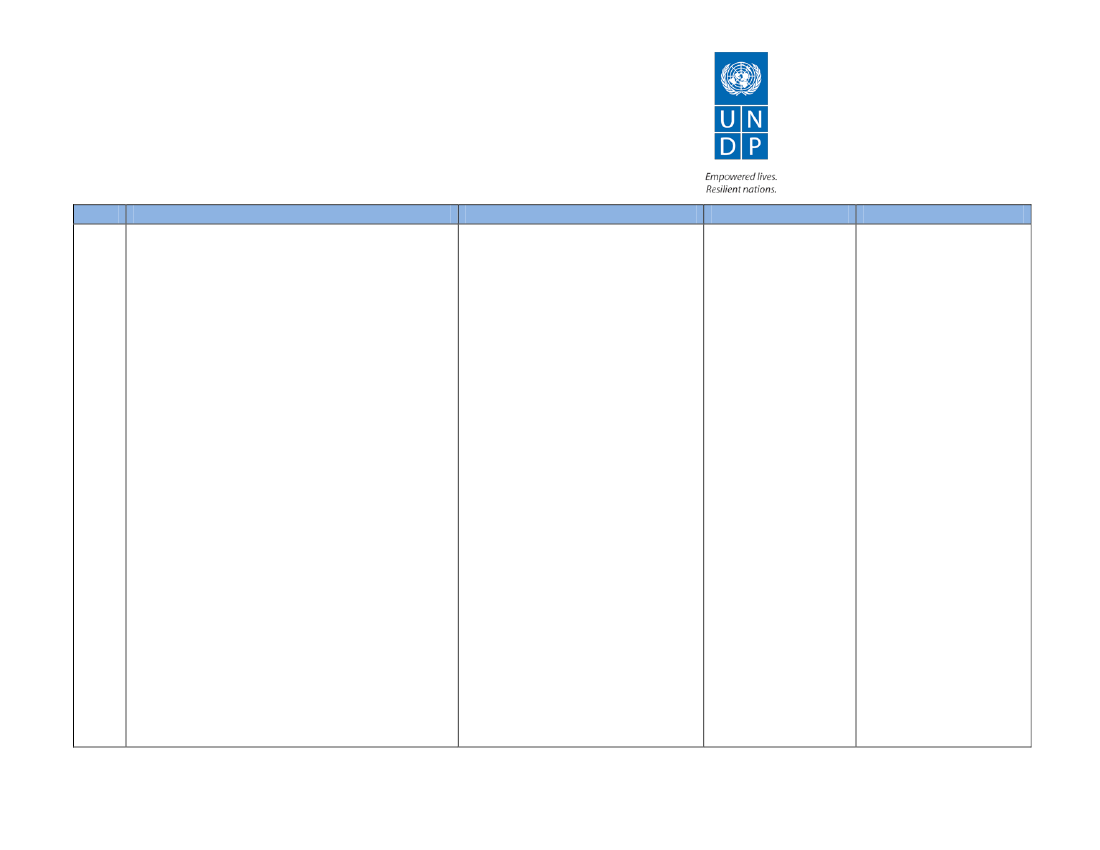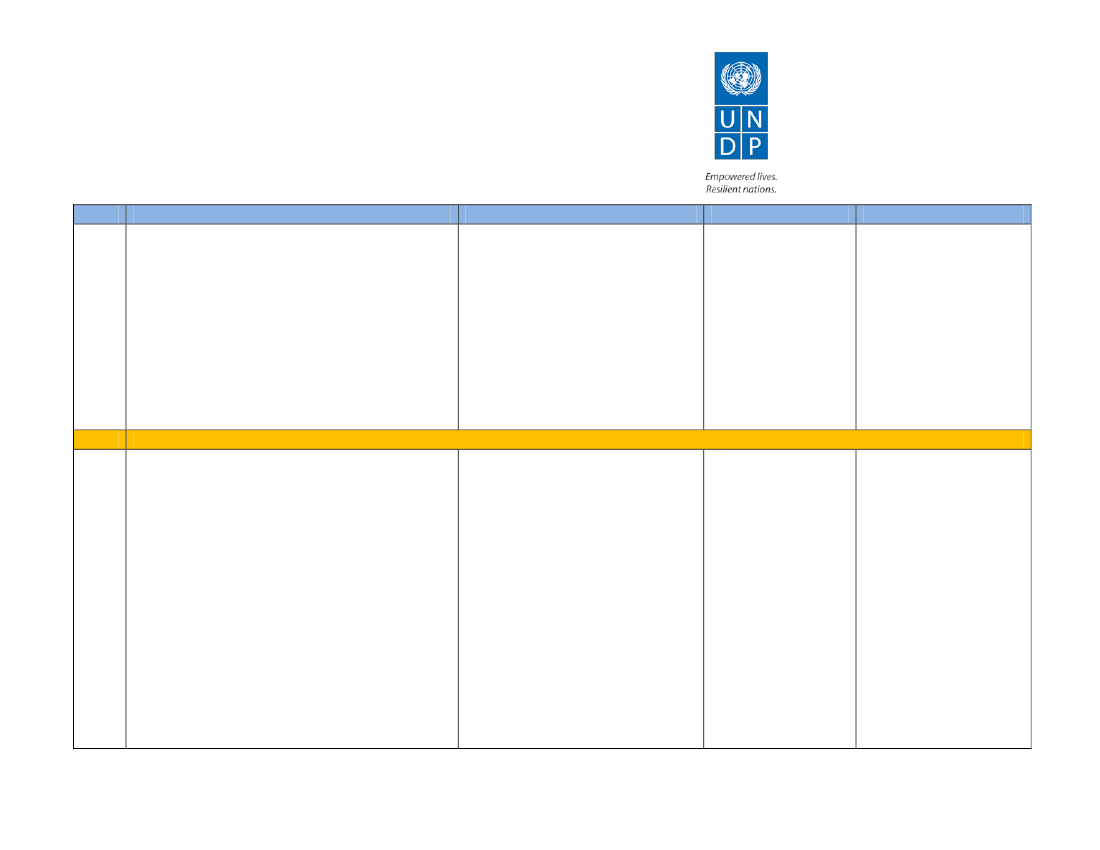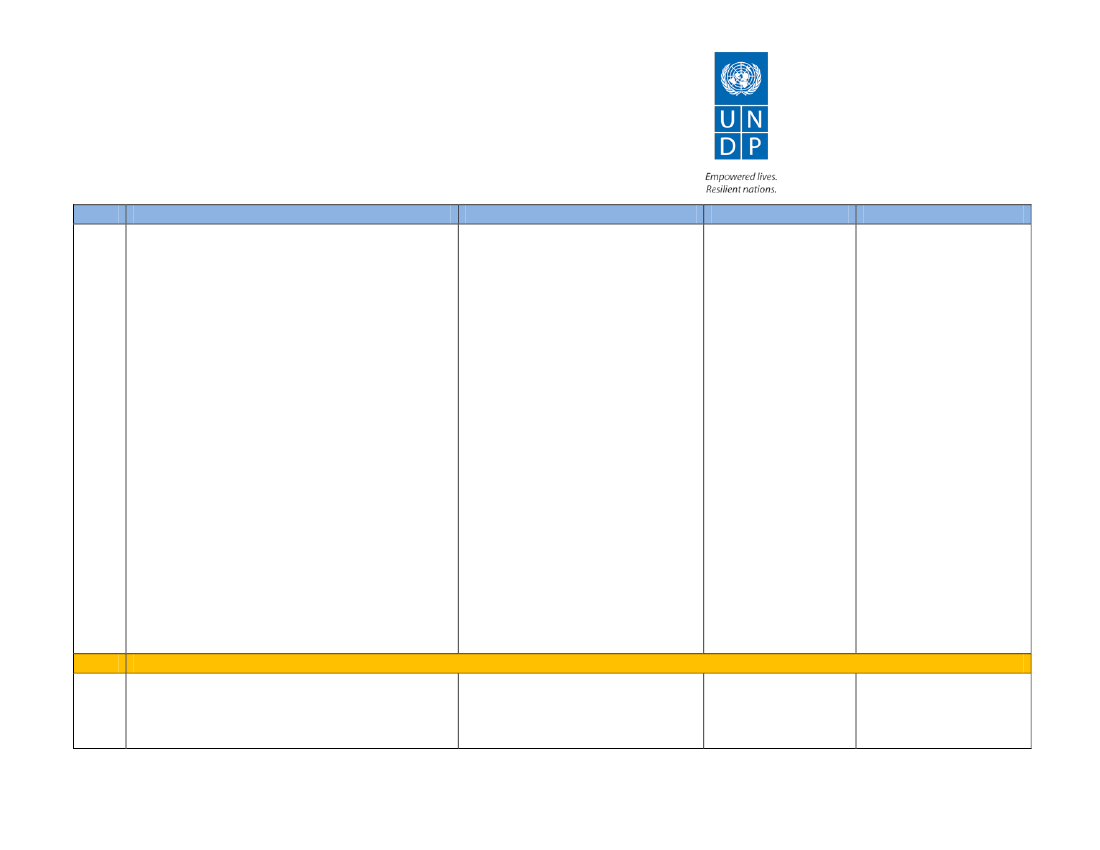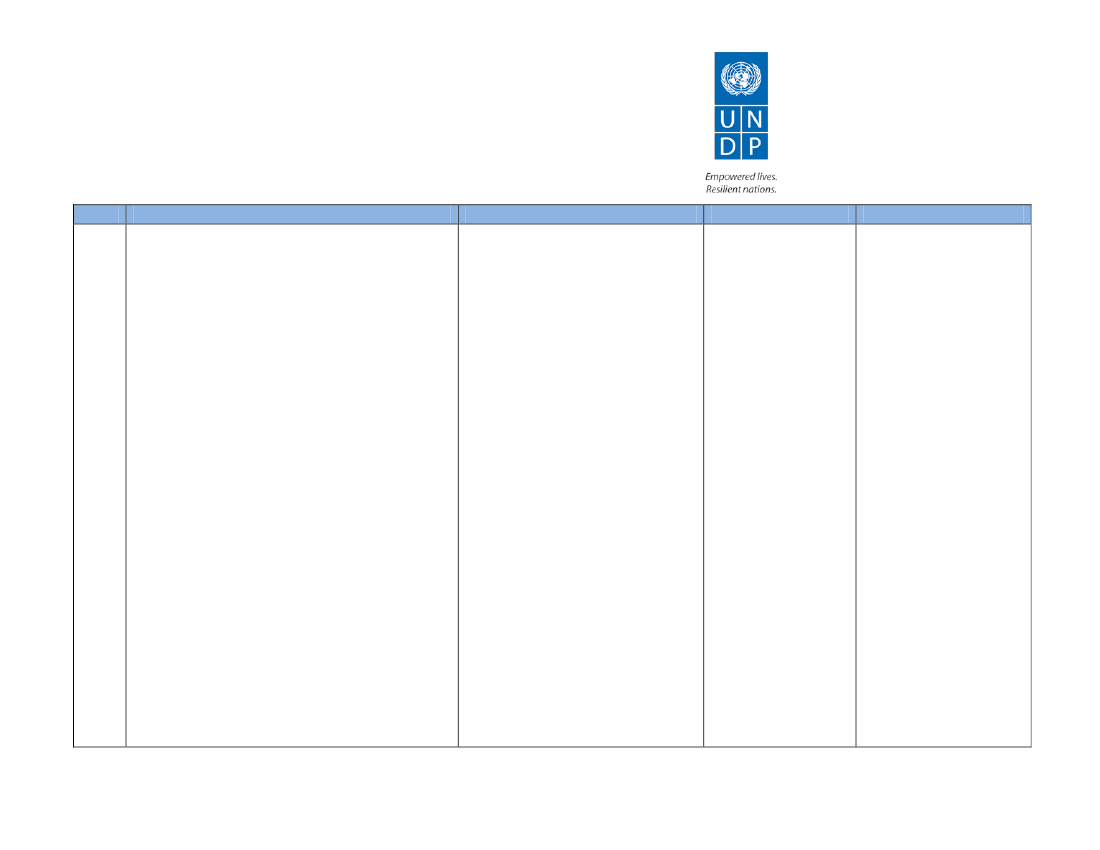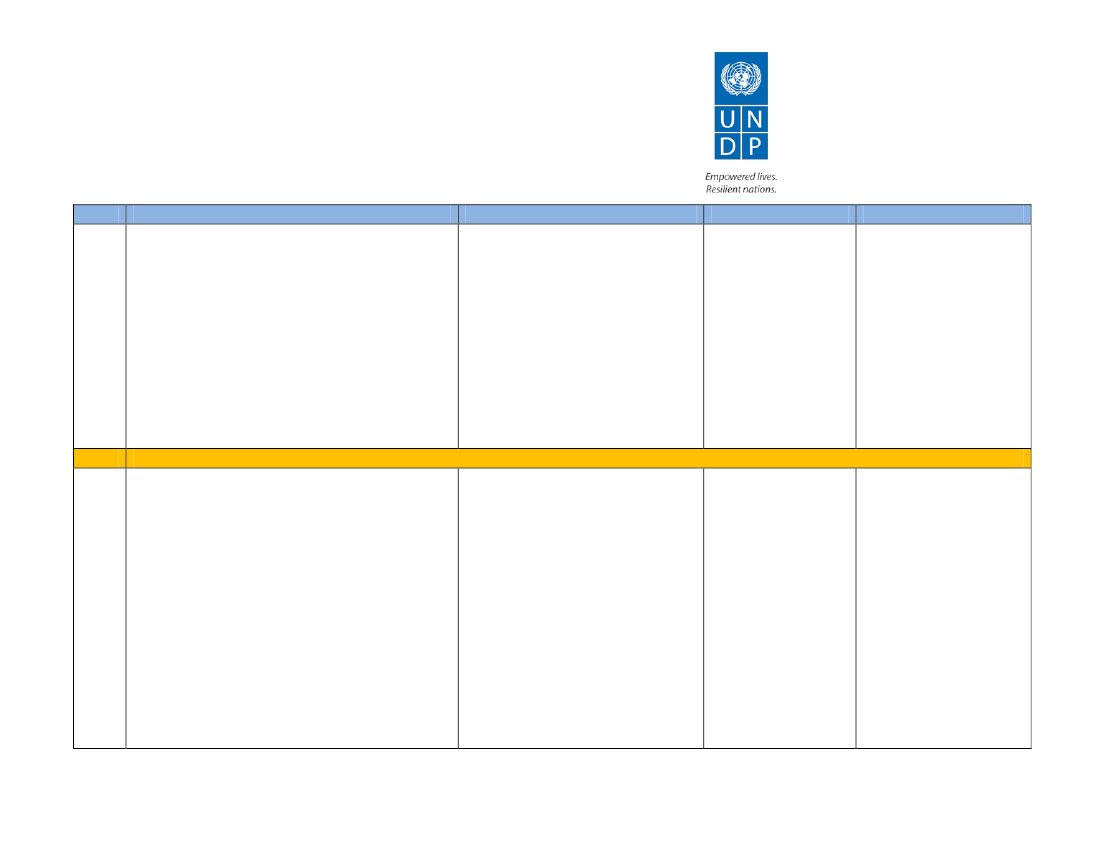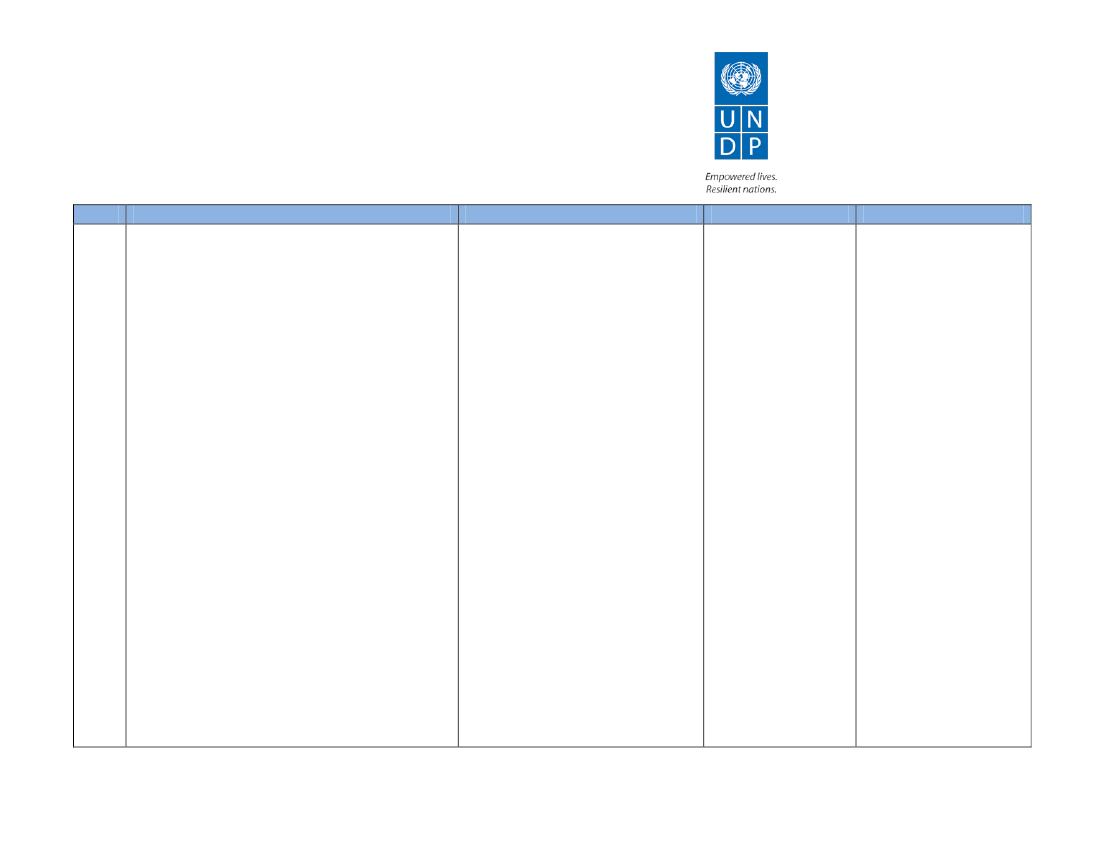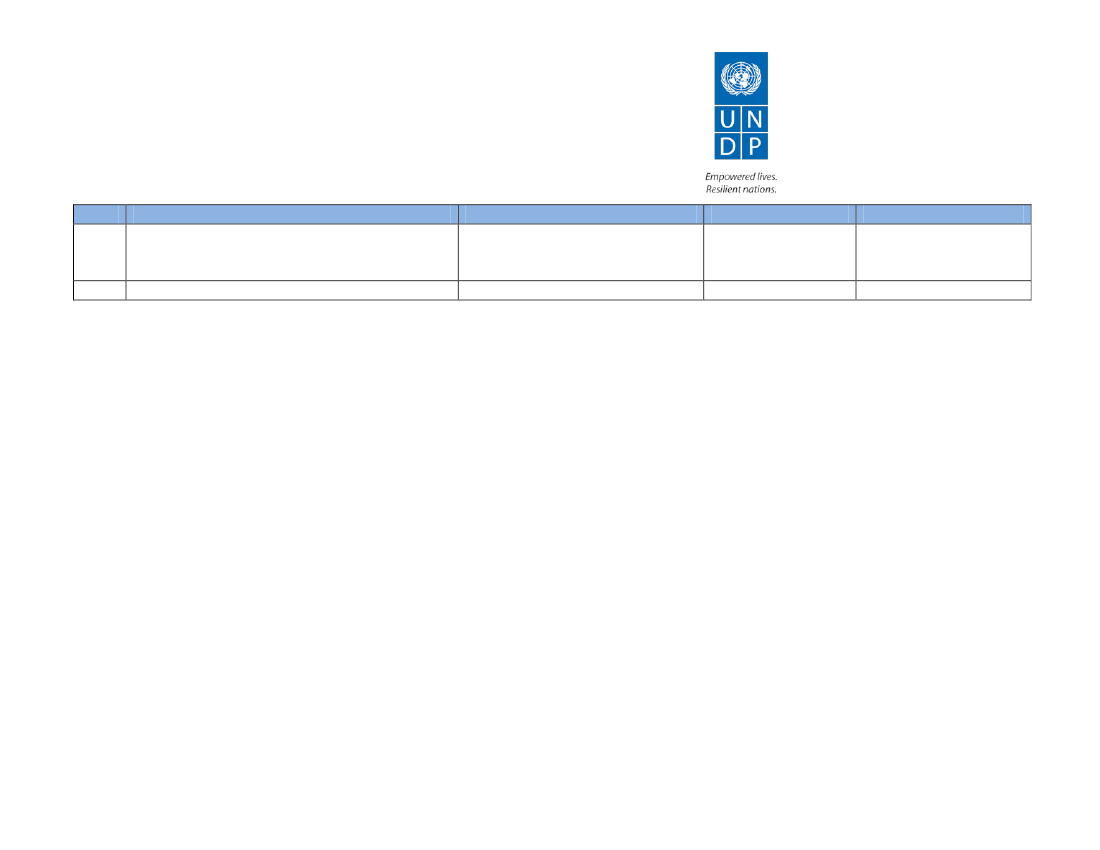Udenrigsudvalget 2012-13
URU Alm.del Bilag 215
Offentligt
United Nations Development Programme
Draft Management Response to the MRT Report of 15 December 2012Law and Order Trust Fund for AfghanistanI.Overview
The Report of the Management Review Team (MRT) submitted in December 2012 was a timely and valuableresource to help guide the on-going repositioning of LOTFA, in line with the evolving strategic direction ofUNDP Afghanistan and cognizant of the changing needs of the development situation in the country.In September 2012, UNDP outlined four linked processes which would work together to help rebuild LOTFA):Quick Response ActionsAudit ResponseManagement ReviewPhase VII Project Document DevelopmentWhile the rebuilding of LOTFA’s programmatic and operational capacities continues, two additional factorshave arisen which broaden the context of how to weave all of the above into a coherent and capablerefocused LOTFA. These are:A new focus on the payroll process:The extension of LOTFA Phase VI to 31 December 2013, to allow for programmatic guidance from therecently-appointed Minister of Interior’s strategic planning initiatives and from the IPCB’s strategicwork.
UNDP Afghanistan’s conclusion from the MRT report is that the top priorities are the reimbursement process,and the associated payroll and IT components of Pillar One, as jointly these elements comprise the bulk ofthe current LOTFA project’s focus, and must be further fine-tuned in this year. UNDP is also mindful of itscommitment to rehabilitate LOTFA in close collaboration with its stakeholders. In this regard, the commentsand suggestions of donors on how to prioritize and approach the recommendations of the MRT Report hasalso been sought out and incorporated in the Management Responses herein.
II.
MRT Recommendations and Management Responses
This section lists the MRT recommendations along the main headlines in the MRT report, and provides anoutline as to how UNDP Afghanistan proposes to address the recommendations.General Assessment
1
United Nations Development Programme
To prevent such fraud from again arising and remaining undetected for long, UNDP at the highest corporatelevel should unequivocally communicate that UNDP is responsible to ensure that its country offices andprojects have staff with the appropriate expertise, guidelines and SOPs to conduct the work expected of them.This implies that country offices are responsible to provide training and support, ensure that SOPs aredeveloped, and monitor their application, so that project staff can work effectively, regardless ofimplementation modality. This should be communicated through the Regional Bureau and become part of theexpectations and performance review criteria for Country Directors and Country Office staff.Management Response:RBAP recognizes the necessity to strengthen the capacity of staff and has already started taking specific steps inthis regard, such as the October 2012 Customized training of Country Office staff to strengthen compliance withUNDP policies and procedures as well as a training on ethics and integrity in February 2013. Further, on-the-job,hands-on support has been provided on financial and procurement issues; regular monitoring and oversight visitsto the country office and provision of audit capacity in Kuala Lumpur specifically for Afghanistan has also beendone. RBAP will ensure the inclusion of responsibility for development of staff capacities and availability of SOP,systems and support for effective project management as per the performance criteria for the CD, DCD andLOTFA PM.CO accepts and agrees with the recommendations on provision of training, development of SOPs and theirsubsequent monitoring.
Governance (Government Ownership):As the International Police Coordination Board (IPCB) clarifies the MOI vision, implementation strategy, andthe role of the many partners in supporting the MOI, it may make sense to shift responsibility of Pillars II andIII to the parts of the Ministry that address such capacity building programmes. This may help with buildingownership within the MOI.Management response:Agreed; LOTFA is already engaging with the MOI to ensure that all Pillar II and Pillar III activities are client-driven, and have specific outcomes, timetables, and budgets. The LOTFA Steering Committee will be agreeing onthe full handover of responsibilities under Pillars I and II to the Government of Afghanistan.
LOTFA as part of MOI Vision and Institution Building:1. The UNDP Country Director or a senior Country Office manager should lead UNDP participation in theIPCB and its working groups, along with relevant LOTFA project staff. LOTFA support under Pillars II and IIIshould be designed around the work of the IPCB, taking into account the efforts of other partners.2. The start of LOTFA VII should be delayed for at least three months to put preparation on a schedule thatfits with timing of the IPCB work.2
United Nations Development Programme
Management response:1. UNDP Country Director attends the IPCB Board meeting, the Sr. DCD-P attends the IPCB Caucusmeeting and the Rule of Law Assistant Country Director ACD attends the IPCB weekly meeting. LOTFAstaff joins the CO in these meetings.2. LOTFA is ensuring that its strategy, plans, and operational procedures are aligned with MOI’s andconsistent with the NIM modality, and can conform to donor and UNDP expectations with regard tofiscal accountability. IPCB is one contributor to this effort, but, like LOTFA, is in a support role to a MoI-driven process.3. Agreed; during the last Steering Committee it was agreed that LOTFA Phase VI would be extended till 31December 2013.
Role of the Steering Committee (SC):1. The SC should be the key policy and decision making body – it should be setting policy, alerted earlyto concerns for consideration, and deciding on issues that are presented to it by LOTFA and decidingon what is funded by LOTFA and who should implement the activities. It needs to be chaired by avery senior official from the MOI. It will need to be supported, as it has been in recent months, by asub-group of partners that meets on a regular basis – akin to the ARTF Financing Group. It should besupported by a small Technical Secretariat which is not involved in implementation.2. The Monitoring Agent should be asked to present regularly to the SC.3. Another discussion that should take place soon with the SC is an early presentation of the content ofLOTFA VII and how it fits with work being done by the IPCB. The chair of the IPCB should be invitedto this discussion (or her representative). This would enhance buy-in from partners and the MOI.4.In short, the role of the SC needs to change to one of policy setting, discussion of key issues, anddecision-making. This change in role for the SC will become all the more important if LOTFA movesto a Multi-Partner Trust Fund (MPTF) model where LOTFA funds projects that are approved by theSC.Management response:1. Agreed; please find attached as annex 1, minutes of the LOTFA SC, in line with what is suggested in themanagement response. Additionally, in the latest LOTFA SC the members agreed that a TechnicalCommittee will be established that reviews project proposals and recommend them to the SC. The UNDPCO will ensure that the Technical Committee is operational. Additionally, the UNDP CO and the LOTFAPM will continue the monthly working group that discusses all matters that discusses technical issues inpreparation for the SC meetings.2. Agreed; this will be done once the new MA contract is procured. UNDP expects this to happen in thesecond half of 2013.3. Agreed. LOTFA Phase VII concept paper has been shared and discussed with the SC. All LOTFAstakeholders, including the IPCB will be closely involved to bring this concept paper to a new pro doc,Phase VII, towards the end of 2013.4. Agreed; refer to annex 2 for the Terms of Reference of the Steering Committee, which are in line with theMRT report, and have been approved by the latest LOTFA Steering Committee.3
United Nations Development Programme
Conversion of LOTFA into a Multi-Partner Trust Fund:1. The MRT recommends that all stakeholders would be better served by converting LOTFA into aMulti-Partner Trust Fund, a funding and management mechanism that UNDP with the UN systemhas developed largely since the creation of LOTFA. Some of the features and benefits of an MPTF canand should be developed under the current LOTFA model, but they will only be securelyinstitutionalized with conversion of LOTFA into an MPTF.2. Personnel (e.g., MPTF Office staff) with operational experience of setting up and running such a trustfund should visit Kabul to explain to all stakeholders how this might work and assist with its setup.3. Once there is agreement to convert LOTFA into an MPTF, all further contribution agreements shouldincorporate reference to the planned change in modality and agree that funds contribute to LOTFAcan be transferred to the new Trust Fund once it has been established. This will simplify futurepartner consultation for this purpose.4. The following measures should be taken to begin to manage LOTFA according to the best-practiceexperience of the Multi-Partner Trust Funds. As noted, the timeline for this should be discussed andagreed by UNDP with MOI and the Steering Committee:a. Separate trust fund administration from programme management in the Country Office;b. Formally recognize the LOTFA Steering Committee as the decision-making body for allLOTFA operations;c. Establish Technical Secretariat mechanism independent of UNDP and that reports to theSteering Committee to review, vet and recommend actions to the Steering Committee;d. Adopt a broad strategy to define what types of activities are fundable under LOTFA;e. Open Pillars II and III (capacity development of MOI and capacity development of nationalpolice) to proposals from other organizations besides UNDP;f. Establish a LOTFA public website that transparently displays relevant information, including:resources contributed to LOTFA; decisions made by the Steering Committee; activitiesfunded by LOTFA; procurement processes, notices and final awards; periodic reports onprogress and challenges of LOTFA operations; etc.Management response:UNDP is in agreement with this recommendation. The LOTFA Steering Committee and working group haveinitiated discussion on a gradual transformation of the current LOTFA into an MPTF, to be completed by the endof Phase VI, while recognizing the importance of a continued strong focus on the rebuilding of LOTFA until it issufficiently robust.
Operational Management:1. The 2012 External Audit – which includes procurement actions initiated in 2011 and 2012 – should beconducted with application of a fraud standard for procurement and for any other function which theOAI Investigations determines to have been mismanaged. Since the main category of initially4
United Nations Development Programme
ineligible expenditures is for food procurement conducted by MOI, the 2012 External Audit shouldinclude a special focus on food procurement (with application of a fraud standard) at HQ andprovincial levels, examining process, procedures and documentation. The results of this part of theExternal Audit should inform the future role of the Monitoring Agent in this area.2. A thorough management audit should be conducted during the first quarter of 2013 of LOTFA’sinternal managements systems, processes and SOPs (with particular attention to asset management,procurement, finances and reporting) to determine what has been established, how well they arefollowed in practice, and what gaps remain. This will orient further work and serve as a benchmark forthe clean-up of the previous LOTFA management systems.Management response:1. Agreed and recommendation included in the TOR for the 2012 NIM audit.2. UNDP agrees; the 2012 NIM audit TOR includes the requirement to cover internal control weaknessesidentified and provide audit recommendations to address them. The LOTFA Steering Committeeendorsed the management audit.3. The Management Audit is a performance audit, not an accounting audit. It will be an external audit ofthe systems after implementing the recommendations made by MRT. It will look at LOTFA, the CO andHQ as well as issues of oversight and management efficacy. UNDP changed its procedures this year. Allour audits will be independent and they will be published on our website. All the recommendations by theMRT to beef up the TORs for audits have been accepted. Between April to June all the UNDP audits willbe on the UNDP public website.
Monitoring Agent:1. The MA should continue to monitor payments through electronic funds transfer, but at a morereduced level unless problems appear, and shift greater attention to food procurement and paymentof salaries other than through the banking system. MA should be tasked to prepare draft guidelinesfor issuance by MOI regarding coding and processing of salary payments.2. The MA should focus particular attention on integrity of the process of salary payments through M-Paisa and “trusted agents.”Management response:UNDP, in consultation with the World Bank and with the Management Review team, has revised the ToRs of theMonitoring Agent and is currently working with the procurement support office in the UNDP office in Denmark inorder to finalise the Request for Proposal that we expect to be issued in the second half of 2013.
Reimbursement Procedure:1. LOTFA should on an annual basis prepare and maintain a document that states the specific itemscovered and calculation basis for reimbursements to the GoA, and ensure that it is discussed andformally agreed by all stakeholders, including the MOI and the MOF;5
United Nations Development Programme
2. LOTFA should raise with the MOI Deputy Minister the issue of missing documentation for foodcontracts to ensure the problem is known and that instructions are given within MOI to give greaterimportance to provide such documentation to the MA (this is part of making greater use of the MA);3. LOTFA should clarify with the GoA and stakeholders the treatment of ineligible expenditure asidentified by the Monitoring Agent and the MOF in terms of full deduction from the reimbursementamounts;4. LOTFA should instruct the Monitoring Agent to prepare a manual that defines the details regardingeligible and ineligible expenditure and the procedures and internal controls regarding payroll andfood expenditures;5. LOTFA should request the Monitoring Agent to certify for payment the amount of the MOF quarterlyreimbursement request that it has found to be fully supported;6. LOTFA should make no payment to MOF for expenditures which have not been adequatelysupported – the MA should certify the amount of the MOF invoice eligible for payment. Furthermore,LOTFA should allow only until the next quarterly request for MOI to provide missing documentation.Management response:The reimbursement procedure of the financial component of LOTFA requires further strengthening. It isassociated with inadequacies of the underlying Chart of Accounts, insufficient training, and inability to verifyidentities of payees. This issue is the top near-term priority and LOTFA is working on it with various partners,including MoI and NTM-A/CSTC-A.UNDP recognizes that food contracts are indeed a problem area. There are inadequate controls and evidence ofmismanagement, which are being followed up in collaboration with NTM-A. Upcoming changes in theprocurement regime will also focus on this.UNDP agrees there is a need for a manual that defines eligible and ineligible expenditures, but the Ministry ofFinance, which “owns” the chart of accounts, will need to provide these guidelines. NTM-A is working to changethe underlying chart of accounts, and LOTFA is revising the EPS accordingly.
Procurement without Professionals– High Risk of Fraud:1. All procurement requirements above an agreed threshold (e.g., $10,000) should be announcedpublicly, including: UNDP (and the future LOTFA) website; Government procurement website; andlocal newspapers.2. The results of all procurement processes should be publicly announced in the same media, includingname of the successful bidder, list of all bids received, and identification of any bids disqualified.3. All LOTFA procurement for goods and works should be conducted by joint procurement teams(LOTFA and MOI); LOTFA should take extra measures to ensure that language is not a barrier toeffective work of the joint teams.4. To the greatest extent reasonable, LOTFA should utilize national procedures for the procurement ofgoods and works, and monitor progress.6
United Nations Development Programme
5. UNDP procurement staff should be available to provide support as necessary and to ensure quality ofprocurement.6. Other recommendations to strengthen LOTFA procurement will come from the focused reviewconcurrently underway by the UNDP surge support in area of procurement.Management Response:LOTFA is now adding professional procurement staff to its roster. This is helping, but should be regarded as awork in progress. As noted in the recommendations, LOTFA will be putting forward specific proposals to MOIbased on the surge support recommendations. The intention will be to move toward proper NIM, but with“complementary procedures” that maximize the proper utilization of resources. The following actions are alsobeing taken on board:Conduct focused training on the provisions of the Procurement Law for Procurement Department staff.Develop a unified Overall Implementation Manual to serve mid and junior level staff to carry out theprocurement processes in line with the PPL.Conduct a needs analysis to identify all required infrastructural facilities. The department should beequipped with constant electricity and computers with a specification to allow the running of the latestversions of compatible software.
Further Action by UNDP Country Office:1. UNDP should ensure that (a) overall fund management is conducted according to the current UNDPbest practice standards and also exemplified by the Multi-Partner Trust Fund Office and (b) payrollproject (Pillar I) has appropriate staffing and dedicated management (not confused with that whichmay be required for other components under Pillars II and III) to ensure it receives the attentionnecessary to deliver the expected quality of service.2. Noting that the Country Office was the site of systematic management failure, the new unit [CountryOffice Oversight and Compliance Unit] should preferentially address improvement to the work of thevarious CO sections and their support to projects. This could involve detecting need for training,SOPs, SLAs, etc. and assisting to develop them.3. The UNDP Country Office (with the support of the Afghanistan Division) should determine whetherthe issues identified in this report apply to the management of the UNDP portfolio in Afghanistan ingeneral.4. Further actions which the UNDP Country Office should undertake include:a. Expeditiously conclude all pending staff recruitments for LOTFA and the Country Office;b. Conduct a Client Satisfaction Survey of all projects regarding Country Office functions andunits to establish current benchmarks and orient action for improvements;c. Develop guidelines and SOPs for standard processes conducted between projects and theCountry Office;d. Draw up service-level agreements for Country Office services to projects, indicatingrespective roles and expected timeframes for action;e. Ensure the Supply Chain Management Section develops a quality improvement support rolefor all NIM projects;7
United Nations Development Programme
f.
Consider matrix reporting for project procurement and finance staff to ensure professionalquality and service;g. Develop the new Compliance and Oversight Unit with a combination of oversight andsupport role to help strengthen the Country Office and projects.Management response:UNDP agrees, and all recommendations are under implementation.
Further Action by UNDP Headquarters:1. Confirm that UNDP will continue to provide the Pillar I services and ensure the necessary actions tomake this effective.2. Support the Country Office to ensure the LOTFA project receives the support and oversight itrequires to be effective and that LOTFA is managed in a manner consistent with UNDP interests andbest practices; taking care that the previous absence of management attention is not replaced byexcessive control efforts, but rather by more effective support to increase operational effectiveness.3. Since a significant number of the observations of the MRT reiterate recommendations of earlierevaluations that do not appear to have received appropriate action, the Afghanistan Division shouldreview all past evaluations and discuss implications and further actions with the Country Office andthe LOTFA Project Manager.Management response:1. UNDP confirms that it will continue to provide the Pillar 1 services in on-going LOTFA programme. UNDPhas underscored the importance of risk mitigation measures and is currently working with theProgramme Steering Committee on the establishment of a risk compact. Moreover, UNDP recognizes theimportance of a reliable police headcount and have been in discussion with stakeholders on the specificsteps that should be undertaken to achieve this objective. UNDP also underscores the importance of allstakeholders being fully involved in the process with UNDP being one of the partners.2. The Special Measures have already been extended by an additional year to 31st December 2013. UNDPwill continue to use the fast track and SURGE mechanisms to rapidly deploy support to LOTFA asrequired. The IBTFA and ET will continue to serve as the mechanisms to ensure integrated and timelysupport to the Afghanistan Country Office ensuring proactive responses on programmatic andoperational challenges. RBAP will continue to provide the requisite strong oversight for LOTFA.3. The Afghanistan Division in RBAP will review all past LOTFA evaluations and will discuss further actionswith the CO.
Weaknesses in Payroll Process:1. LOTFA should continue to support the development and roll-out of AHRIMS by CSTC-A, so as toensure that a single authenticated and reliable source of personnel data is being established, and assoon as possible is linked to EPS/WEPS;8
United Nations Development Programme
2. LOTFA should discuss with the MOI the possibility of revising the HR lists and forms used in theDistricts to include ID numbers (if/as available);3. LOTFA should discuss with the MOI and relevant partners the possibility of rationalising theentitlement scheme as well as how to ensure that entitlement can be included in EPS/WEPS andAHRIMS;4. While the work and functioning of DynCorp International in issuing IDs to the ANP is beyond thecontrol of LOTFA, LOTFA should support the Steering Committee and stakeholders in placingmaximum emphasis on this task being expedited and the existing database cleaned of inactive ANPpersonnel;5. LOTFA should re-configure the EPS/WEPS so as to include approved expenditure object codes;6. LOTFA should discuss with the MOF’s Treasury Department whether automated controls can beestablished in AFMIS to ensure that only eligible/correct object codes are applied for ANP salarypayment requests;7. LOTFA should discuss with the MOI if and how the staff numbers included in M16 forms can be usedfor headcount purposes;8. The reconciliation undertaken by LOTFA of EPS-generated pay slips vis-à-vis bank statements shouldbe automated; and,9. While the establishment of commercial bank branches is beyond the control of LOTFA, LOTFAshould support the Steering Committee and stakeholders in placing maximum importance vis-à-viscommercial banks and mobile network operators, as appropriate, on extending theirnetwork/coverage.Management Response:UNDP understands the importance of the suggestions in point 1, 2, 3, 4, 6, 7 and 9 and is working diligently topush for solutions, while recognizing that the solutions are not within the scope of the LOTFA mandate.On the remainder of the points, address of these issues will require the assistance of a professional IT firm toadvice on the extent to which the present system can resolve these issues.
Weaknesses in IT System Management and Software:1. Hire an external system integration firm to:a. Study the entire payroll process, including HR elements (recruitment, assignment,movement, entitlements, promotion, separation, etc.); study the existing computerizedsystems (DYNCORP ID system, AHRMIS, EPS and AFMIS) and conduct business analysis ofthe end-to-end process.b. Design an end-to-end payroll system, addressing the existing weaknesses of the currentsystems and full integration of the systems.22c. Review AHRIMS in view of implementing enhancements to accommodate staff recruitment,entitlements and controls around it.d. Revise EPS to ensure that the system meets the requirements of object codes and controlsaround them, accommodate processing of reimbursements, reconciliation, etc.9
United Nations Development Programme
2.
e. Integrate EPS with AFMIS, eliminating manual preparation of manual M16 and receivingreimbursement data from AFMIS.f. Automate data interface between EPS and the systems of the client banks and M-Paisa,including reconciliation.Professionalize LOTFA and MOI IT function:a. Coordinate IT systems in MOI under a high-level IT steering committee: The IT steeringcommittee will ensure that all departments cooperate in the design, development and rolloutof all IT initiatives, prevent duplication of efforts and share resources between variousdepartments. The IT steering committee will be responsible for setting policies and fundingfor various initiatives and ensuring future system development.b. The professionalization of the IT function means that a functional IT unit with appropriatestaffing level is created, for which the IT staff have their own job description that do notinclude business functions such as registering new recruits in the data base, data entry oranswering questions related to the payments or entitlements of staff.c. Professionalization also means development of policies and guidelines for development,maintenance and helpdesk support. For systems development, it may adopt a systemdevelopment life cycle methodology. A brief description of SDLC is provided in Annex 9.d. Combine maintenance and support for EPS and HR applications under one umbrella, i.e.,LOTFA, to ensure coordinated development and maintenance and reduce cost. Theoperation of the systems will still be located at their functional departments, e.g., theAHRIMS will be fully operated by Paizhantoon or the HR Department of the MOI.e. Establish disaster recovery site. This will ensure that in case one site is hit by some disaster,the business of paying the police or the HR functions will not come to halt but the secondarysite or the disaster recovery site would be able to become operational and replace theprimary site within a couple of days or even hours.f. Finally, develop a plan to complete full transfer of all EPS operations to MOI within two yearsand the IT department within one year after all developments and integrations arecompleted.
Management response:UNDP agrees that a professional external firm should be hired to address and resolve all pending issues. WhileUNDP is working for this procurement to take place as soon as possible, the Steering Committee endorsed aseries of prior steps needed to be taken by the organization to ensure maximum impact of the work of the firm.UNDP intends to contract the firm before the end of Phase VI.UNDP agrees with the need to professionalize all aspects of the IT functions, but would like to caution thatimplementation of most of the recommendations is not within its mandate. The organization will therefore workdiligently with the senior leadership of the Ministry of Interior and relevant partners towards the implementation.On point 2e. UNDP agrees and will ensure this site is fully operational by November 2013.
10
United Nations Development Programme
On point 2f. UNDP agrees that there should be a planned transfer of EPS operations to MoI. The timeframe fordoing this recommendation will negotiated with the Ministries of Finance and Interior based on the findings ofthe IT firm.
11
United Nations Development Programme
Table of Recommendations and Responsibility for Action
No.1.
RecommendationGeneral AssessmentTo prevent such fraud from again arising andremaining undetected for long, UNDP at thehighest corporate level should unequivocallycommunicate that UNDP is responsible to ensurethat its country offices and projects have staff withthe appropriate expertise, guidelines and SOPs toconduct the work expected of them. This impliesthat country offices are responsible to providetraining and support, ensure that SOPs aredeveloped, and monitor their application, so thatproject staff can work effectively, regardless ofimplementation modality. This should becommunicated through the Regional Bureau andbecome part of the expectations and performancereview criteria for Country Directors and CountryOffice staff.
Response
Responsibility
Deadline1. On-goingprocess.2. All SOPs will bedeveloped by 31December 2013.Training is on-going
Agreed. RBAP recognizes the RBAPnecessity to strengthen the capacityof staff and has already startedtaking specific steps in this regard.October 2012 Customizedtraining of Country Officestafftostrengthencompliance with UNDPpolicies and procedures.Training on ethics andintegrity in February 2013.On-the-job,hands-onsupport has been providedonfinancialandprocurement issues.Regular monitoring andoversight visits to thecountry office.Provision of audit capacity inKuala Lumpur specificallyfor Afghanistan has also
12
United Nations Development Programme
No.
Recommendation
ResponseResponsibilitybeen done.RBAP will ensure theinclusion of responsibility fordevelopmentofstaffcapacities and availability ofSOP, systems and supportforeffectiveprojectmanagement as per theperformance criteria for theCD, DCD and LOTFA PM.
Deadline
2.
Government Ownership
Responsibility of Pillars II and III could be shifted tothe parts of the Ministry that address relatedcapacity building programmes
Steering Exit strategy for Pillars IILOTFA is already engaging LOTFAand III will be included inwith the MOI to ensure that Committeethe LOTFA Phase VIIall Pillar II and Pillar IIIProdocactivities are client-driven,and have specific outcomes,timetables, and budgets.TheLOTFASteeringCommittee will be agreeingon the full handover ofresponsibilities under PillarsI and II to the Governmentof Afghanistan.
3.
LOTFA as part of MOI Vision and Institution Building
13
United Nations Development Programme
No.
4.
RecommendationResponseResponsibilityDeadline1. The UNDP Country Director or a senior1. UNDP Country Director1. Explained in ImplementedCountry Office manager should leadattends the IPCB BoardcolumnonUNDP participation in the IPCB and itsmeeting, the Sr. DCD-Pthe left.working groups, along with relevantattends the IPCB Caucus2. LOTFA PMLOTFA project staff.meeting and the RoL ACD2. LOTFA support under Pillars II and IIIattends the IPCB weeklyshould be designed around the work ofmeeting. LOTFA staff joinsthe IPCB, taking into account the effortsthe CO in these meetings.of other partners2. LOTFA is ensuring that itsstrategy, plans, andoperational procedures arealigned with MOI’sconsistent with the NIMmodality, and can conformto donor and UNDPexpectations with regard tofiscal accountability. IPCB isone contributor to thiseffort, but, like LOTFA, is ina support role to a MoI-driven process.The start of LOTFA VII should be delayed for at Agreed and implemented. The LOTFASteering Implementedleast three months to put preparation on a Steering Committee approved and Committeeschedule that fits with timing of the IPCB work.extension of LOTFA Phase VI to 31December 2013.Role of the Steering CommitteeThe SC should be the key policy and decision Agreed.1. LOTFA1. Implementedmaking body – it should be setting policy, alerted1. The LOTFA SC has approvedSteering2. Implemented14
United Nations Development Programme
No.
RecommendationResponseResponsibilityDeadlineearly to concerns for consideration, and decidingits new Terms of ReferenceCommittee.3. July 2013on issues that are presented to it by LOTFA andthatincludethis2. LOTFA SC4. Ongoingdeciding on what is funded by LOTFA and whorecommendation.3. UNDPSr.should implement the activities. It needs to be2. The LOTFA SC approved aDCD-Pchaired by a very senior official from the MOI. ItTechnical Committee will be4. UNDPSr.will need to be supported, as it has been in recentestablished that reviewsDCD-Pmonths, by a sub-group of partners that meets onprojectproposalsanda regular basis – akin to the ARTF Financingrecommend them to the SC.Group. It should be supported by a small Technical3. UNDP CO to ensureSecretariat which is not involved inTechnical Committee isimplementation.operational.4. UNDP CO and LOTFA PMwill continue the monthlyworkinggroupthatdiscusses all matters thatdiscusses technical issues inpreparation for the SCmeetingsThe Monitoring Agent should be asked to present Agreed; this will be done once the UNDP Sr. DCD-POctober 2013regularly to the SC.new MA contract is procured. UNDPexpects this to happen in the secondhalf of 2013.Presentation of the content of LOTFA VII and how Agreed. LOTFA Phase VII concept LOTFA PMOn-goingit fits with work being done by the IPCB. The chair paper has been shared andof the IPCB should be invited to this discussion (or discussed with the SC. All LOTFAher representative).stakeholders, including the IPCB willbe closely involved to bring thisconcept paper to a new pro doc,15
United Nations Development Programme
No.
Recommendation
5.
6.
ResponsePhase VII, towards the end of 2013.The role of the SC needs to change to one of Agreed. See earlier response.policy setting, discussion of key issues, anddecision-makingConversion of LOTFA into a Multi-Partner Trust FundConversion of LOTFA into a Multi-Partner TrustAgreed. The LOTFA SteeringFundCommittee and working group havePersonnel (e.g., MPTF Office staff) with initiated discussion on a gradualoperational experience of setting up and running transformation of the currentsuch a trust fund should visit Kabul to explain to all LOTFA into an MPTF, to bestakeholders how this might work and assist with completed by the end of Phase VI,its setup.while recognizing the importance ofa continued strong focus on theOnce there is agreement to convert LOTFA into rebuilding of LOTFA until it’san MPTF, all further contribution agreements sufficiently robust.should incorporate reference to the plannedchange in modality and agree that fundscontribute to LOTFA can be transferred to thenew Trust Fund once it has been establishedOperational ManagementThe 2012 External Audit – which includes Agreedandrecommendationprocurement actions initiated in 2011 and 2012 – included in the TOR for the 2012should be conducted with application of a fraud NIM audit.standard for procurement and for any otherfunction which the OAI Investigations determinesto have been mismanaged.A thorough management audit should be Agreed. The 2012 NIM audit TORconducted during the first quarter of 2013 of includes the requirement to cover
Responsibility
Deadline
UNDP Sr. DCD-P
31 December 2013
HeadUNDP Implemented.OversightandCompliance Unit
UNDP Sr. DCD-P
Last quarter of 201316
United Nations Development Programme
No.
RecommendationLOTFA’s internal managements systems,processes and SOPs (with particular attention toasset management, procurement, finances andreporting) to determine what has beenestablished, how well they are followed inpractice, and what gaps remain
ResponseResponsibilityinternal control weaknessesidentified and provide auditrecommendations to address them.The LOTFA Steering Committeeendorsed the management audit.The Management Audit is aperformance audit, not anaccounting audit. It will be anexternal audit of the systems afterimplementing therecommendations made by MRT. Itwill look at LOTFA, the CO and HQas well as issues of oversight andmanagement efficacy. UNDPchanged its procedures this year. Allour audits will be independent andthey will be published on ourwebsite. All the recommendationsby the MRT to beef up the TORs foraudits have been accepted. BetweenApril to June all the UNDP audits willbe on the UNDP public website.Agreed. UNDP, in consultation with LOTFA PMthe World Bank and with theManagement Review team, hasrevised the ToRs of the MonitoringAgent and is currently working with
Deadline
7.
Monitoring AgentThe MA should continue to monitor paymentsthrough electronic funds transfer, but at a morereduced level unless problems appear, and shiftgreater attention to food procurement andpayment of salaries other than through the
31 December 2013
17
United Nations Development Programme
No.
8.
Recommendationbanking system. MA should be tasked to preparedraft guidelines for issuance by MOI regardingcoding and processing of salary payments,Further, the MA should focus particular attentionon integrity of the process of salary paymentsthrough M-Paisa and “trusted agents.”Reimbursement ProcedureReimbursement Procedure:1.LOTFA should on an annual basis prepareand maintain a document that states the specificitems covered and calculation basis forreimbursements to the GoA, and ensure that it isdiscussed and formally agreed by all stakeholders,including the MoI and the MoF.2.LOTFA should raise with the MoI DeputyMinister the issue of missing documentation forfood contracts to ensure the problem is knownand that instructions are given within MOI to givegreaterimportancetoprovidesuchdocumentation to the MA (this is part of makinggreater use of the MA).3.LOTFA should clarify with the GoA andstakeholders the treatment of ineligibleexpenditure as identified by the Monitoring Agentand the MOF in terms of full deduction from thereimbursement amounts.4.LOTFA should instruct the MonitoringAgent to prepare a manual that defines the details
ResponseResponsibilitythe procurement support office inthe UNDP office in Denmark inorder to finalise the Request forProposals to be issued in the secondhalf of 2013.
Deadline
The reimbursement procedure of LOTFA PMthe financial component of LOTFArequires further strengthening. It isassociated with inadequacies of theunderlying Chart of Accounts,insufficient training, and inability toverify identities of payees. This issueis the top near-term priority andLOTFA is working on it with variouspartners, including MoI and NTM-A/CSTC-A.UNDP recognizes that foodcontracts are indeed a problem area.There are inadequate controls andevidence of mismanagement, whicharebeingfollowed upincollaborationwithNTM-A.Upcomingchangesintheprocurement regime will also focuson this.
31 December 2013
18
United Nations Development Programme
No.
9.
RecommendationResponseResponsibilityregarding eligible and ineligible expenditure andthe procedures and internal controls regarding UNDP agrees there is a need for apayroll and food expenditures.manual that defines eligible and5.LOTFA should request the Monitoring ineligible expenditures, but theAgent to certify for payment the amount of the Ministry of Finance, which “owns”MOF quarterly reimbursement request that it has the chart of accounts, will need tofound to be fully supported.provide these guidelines. NTM-A is6.LOTFA should make no payment to MoF working to change the underlyingfor expenditures which have not been adequately chart of accounts, and LOTFA issupported – the MA should certify the amount of revising the EPS accordingly.the MOF invoice eligible for payment.Furthermore, LOTFA should allow only until thenext quarterly request for MOI to provide missingdocumentation.Procurement without Professionals– High Risk of FraudProcurement without Professionals– High Risk of LOTFA is now adding professional LOTFA PMFraud:procurement staff to its roster. This1.All procurement requirements above an is helping, but should be regarded asagreed threshold (e.g., $10,000) should be a work in progress. As noted in theannounced publicly, including: UNDP (and the recommendations, LOTFA will befuture LOTFA) website; Government procurement putting forward specific proposals towebsite; and local newspapers.MoI based on the surge support2.The results of all procurement processes recommendations. The intentionshould be publicly announced in the same media, will be to move toward proper NIM,including name of the successful bidder, list of all butwith“complementarybids received, and identification of any bids procedures” that maximize thedisqualified.proper utilization of resources. The3.All LOTFA procurement for goods and following actions are also being
Deadline
October 2013
19
United Nations Development Programme
No.
Recommendationworks should be conducted by joint procurementteams (LOTFA and MOI); LOTFA should takeextra measures to ensure that language is not abarrier to effective work of the joint teams.4.To the greatest extent reasonable, LOTFAshould utilize national procedures for theprocurement of goods and works, and monitorprogress.5.UNDP procurement staff should beavailable to provide support as necessary and toensure quality of procurement.6.Other recommendations to strengthenLOTFA procurement will come from the focusedreview concurrently underway by the UNDP surgesupport in area of procurement.
ResponseResponsibilitytaken on board:•Conduct focused training onthe provisions of the ProcurementLaw for Procurement Departmentstaff.•Develop a unified OverallImplementation Manual to servemid and junior level staff to carry outthe procurement processes in linewith the PPL.•Conduct a needs analysis toidentify all required infrastructuralfacilities. The department should beequipped with constant electricityand computers with a specificationto allow the running of the latestversions of compatible software.1. Sr. DCD-P2. OversightandComplianceUnit3. CountryDirector/RBAPDivision Chief
Deadline
11.
Further Action by UNDP Country OfficeFurther Action by UNDP Country Office:Agreed.1.UNDP should ensure that (a) overall fundmanagement is conducted according to thecurrent UNDP best practice standards and alsoexemplified by the Multi-Partner Trust FundOffice and (b) payroll project (Pillar I) hasappropriate staffing and dedicated management(not confused with that which may be required forother components under Pillars II and III) to ensureit receives the attention necessary to deliver the
1. 31December20132. On-going3. 31December2013
20
United Nations Development Programme
No.
RecommendationResponseexpected quality of service.2.Noting that the Country Office was thesite of systematic management failure, the newunit [Country Office Oversight and ComplianceUnit] should preferentially address improvementto the work of the various CO sections and theirsupport to projects. This could involve detectingneed for training, SOPs, SLAs, etc. and assistingto develop them.3.The UNDP Country Office (with thesupport of the Afghanistan Division) shoulddetermine whether the issues identified in thisreport apply to the management of the UNDPportfolio in Afghanistan in general.4.Further actions which the UNDP CountryOffice should undertake include:a.Expeditiously conclude all pending staffrecruitments for LOTFA and the Country Office;b.Conduct a Client Satisfaction Survey of allprojects regarding Country Office functions andunits to establish current benchmarks and orientaction for improvements;c.Develop guidelines and SOPs for standardprocesses conducted between projects and theCountry Office;d.Draw up service-level agreements forCountry Office services to projects, indicatingrespective roles and expected timeframes for
Responsibility
Deadline
21
United Nations Development Programme
No.
12.
Recommendationaction;e.Ensure the Supply Chain ManagementSection develops a quality improvement supportrole for all NIM projects;f.Consider matrix reporting for projectprocurement and finance staff to ensureprofessional quality and service;g.Develop the new Compliance andOversight Unit with a combination of oversightand support role to help strengthen the CountryOffice and projects.Further Action by UNDP HeadquartersFurther Action by UNDP Headquarters:1.Confirm that UNDP will continue toprovide the Pillar I services and ensure thenecessary actions to make this effective.2.Support the Country Office to ensure theLOTFA project receives the support and oversightit requires to be effective and that LOTFA ismanaged in a manner consistent with UNDPinterests and best practices; taking care that theprevious absence of management attention is notreplaced by excessive control efforts, but ratherby more effective support to increase operationaleffectiveness.3.Since a significant number of theobservationsoftheMRTreiteraterecommendations of earlier evaluations that do
Response
Responsibility
Deadline
1.Confirmed.RBAP - Afghanistan 31 December 20132.UNDP confirms that it will Division Chiefcontinue to provide the Pillar 1services in on-going LOTFAprogramme. UNDP has underscoredthe importance of risk mitigationmeasures and is currently workingwith the Programme SteeringCommittee on the establishment ofa risk compact. Moreover, UNDPrecognizes the importance of areliable police headcount and havebeen in discussion with stakeholderson the specific steps that should beundertakentoachievethisobjective. UNDP also underscores22
United Nations Development Programme
No.
Recommendationnot appear to have received appropriate action,the Afghanistan Division should review all pastevaluations and discuss implications and furtheractions with the Country Office and the LOTFAProject Manager.
ResponseResponsibilitythe importance of all stakeholdersbeing fully involved in the processwith UNDP being one of thepartners. The Special Measures havealready been extended by anadditional year to 31st December2013. UNDP will continue to use thefast track and SURGE mechanismsto rapidly deploy support to LOTFAas required. The IBTFA and ET willcontinuetoserveasthemechanisms to ensure integratedand timely support to theAfghanistanCountryOfficeensuring proactive responses onprogrammatic and operationalchallenges. RBAP will continue toprovide the requisite strongoversight for LOTFA.3.The Afghanistan Division inRBAP will review all past LOTFAevaluations and will discuss furtheractions with the CO.UNDP understands the importance LOTFA PMof the suggestions in point 1, 2, 3, 4,6, 7 and 9 and is working diligentlyto push for solutions, while
Deadline
13.
Weaknesses in Payroll ProcessWeaknesses in Payroll Process:1.LOTFA should continue to support thedevelopment and roll-out of AHRIMS by CSTC-A,so as to ensure that a single authenticated and
31 December 2013
23
United Nations Development Programme
No.
Recommendationreliable source of personnel data is beingestablished, and as soon as possible is linked toEPS/WEPS;2.LOTFA should discuss with the MOI thepossibility of revising the HR lists and forms usedin the Districts to include ID numbers (if/asavailable);3.LOTFA should discuss with the MOI andrelevant partners the possibility of rationalisingthe entitlement scheme as well as how to ensurethat entitlement can be included in EPS/WEPSand AHRIMS;4.While the work and functioning ofDynCorp International in issuing IDs to the ANP isbeyond the control of LOTFA, LOTFA shouldsupport the Steering Committee and stakeholdersin placing maximum emphasis on this task beingexpedited and the existing database cleaned ofinactive ANP personnel;5.LOTFA should re-configure the EPS/WEPSso as to include approved expenditure objectcodes;6.LOTFA should discuss with the MOF’sTreasury Department whether automatedcontrols can be established in AFMIS to ensurethat only eligible/correct object codes are appliedfor ANP salary payment requests;7.LOTFA should discuss with the MOI if and
ResponseResponsibilityrecognizing that the solutions arenot within the scope of the LOTFAmandate.On the remainder of the points,address of these issues will requirethe assistance of a professional ITfirm to advice on the extent to whichthe present system can resolvethese issues.
Deadline
24
United Nations Development Programme
No.
14.
RecommendationResponseResponsibilityhow the staff numbers included in M16 forms canbe used for headcount purposes;8.The reconciliation undertaken by LOTFAof EPS-generated pay slips vis-à-vis bankstatements should be automated; and,9.While the establishment of commercialbank branches is beyond the control of LOTFA,LOTFA should support the Steering Committeeand stakeholders in placing maximum importancevis-à-vis commercial banks and mobile networkoperators, as appropriate, on extending theirnetwork/coverage.Weaknesses in IT System Management and Software1.Hire an external system integration firm.UNDP agrees that a professional LOTFA PM2.Professionalize LOTFA and MOI IT external firm should be hired tofunction:address and resolve all pendinga.Coordinate IT systems in MOI under a issues. While UNDP is working forhigh-level IT steering committee: The IT steering this procurement to take place ascommittee will ensure that all departments soon as possible, the Steeringcooperate in the design, development and rollout Committee endorsed a series ofof all IT initiatives, prevent duplication of efforts prior steps needed to be taken byandshareresourcesbetweenvarious theorganizationtoensuredepartments. The IT steering committee will be maximum impact of the work of theresponsible for setting policies and funding for firm.various initiatives and ensuring future system UNDP agrees with the need todevelopment.professionalize all aspects of the ITb.The professionalization of the IT function functions, but would like to cautionmeans that a functional IT unit with appropriate that implementation of most of the
Deadline
31 October 2013
25
United Nations Development Programme
No.
Recommendationstaffing level is created, for which the IT staff havetheir own job description that do not includebusiness functions such as registering new recruitsin the data base, data entry or answeringquestions related to the payments or entitlementsof staff.c.Professionalizationalsomeansdevelopment of policies and guidelines fordevelopment, maintenance and helpdesk support.For systems development, it may adopt a systemdevelopment life cycle methodology. A briefdescription of SDLC is provided in Annex 9.d.Combine maintenance and support forEPS and HR applications under one umbrella, i.e.,LOTFA, to ensure coordinated development andmaintenance and reduce cost. The operation ofthe systems will still be located at their functionaldepartments, e.g., the AHRIMS will be fullyoperated by Paizhantoon or the HR Departmentof the MOI.e.Establish disaster recovery site. This willensure that in case one site is hit by some disaster,the business of paying the police or the HRfunctions will not come to halt but the secondarysite or the disaster recovery site would be able tobecome operational and replace the primary sitewithin a couple of days or even hours.f.Finally, develop a plan to complete full
ResponseResponsibilityrecommendations is not within itsmandate. The organization willtherefore work diligently with thesenior leadership of the Ministry ofInterior and relevant partnerstowards the implementation.On point 2e. UNDP agrees and willensure this site is fully operationalby November 2013.On point 2f. UNDP agrees that thereshould be a planned transfer of EPSoperations to MoI. The timeframefor doing this recommendation willnegotiated with the Ministries ofFinance and Interior based on thefindings of the IT firm.
Deadline
26
United Nations Development Programme
No.
RecommendationResponsetransfer of all EPS operations to MOI within twoyears and the IT department within one year afterall developments and integrations are completed.
Responsibility
Deadline
27


